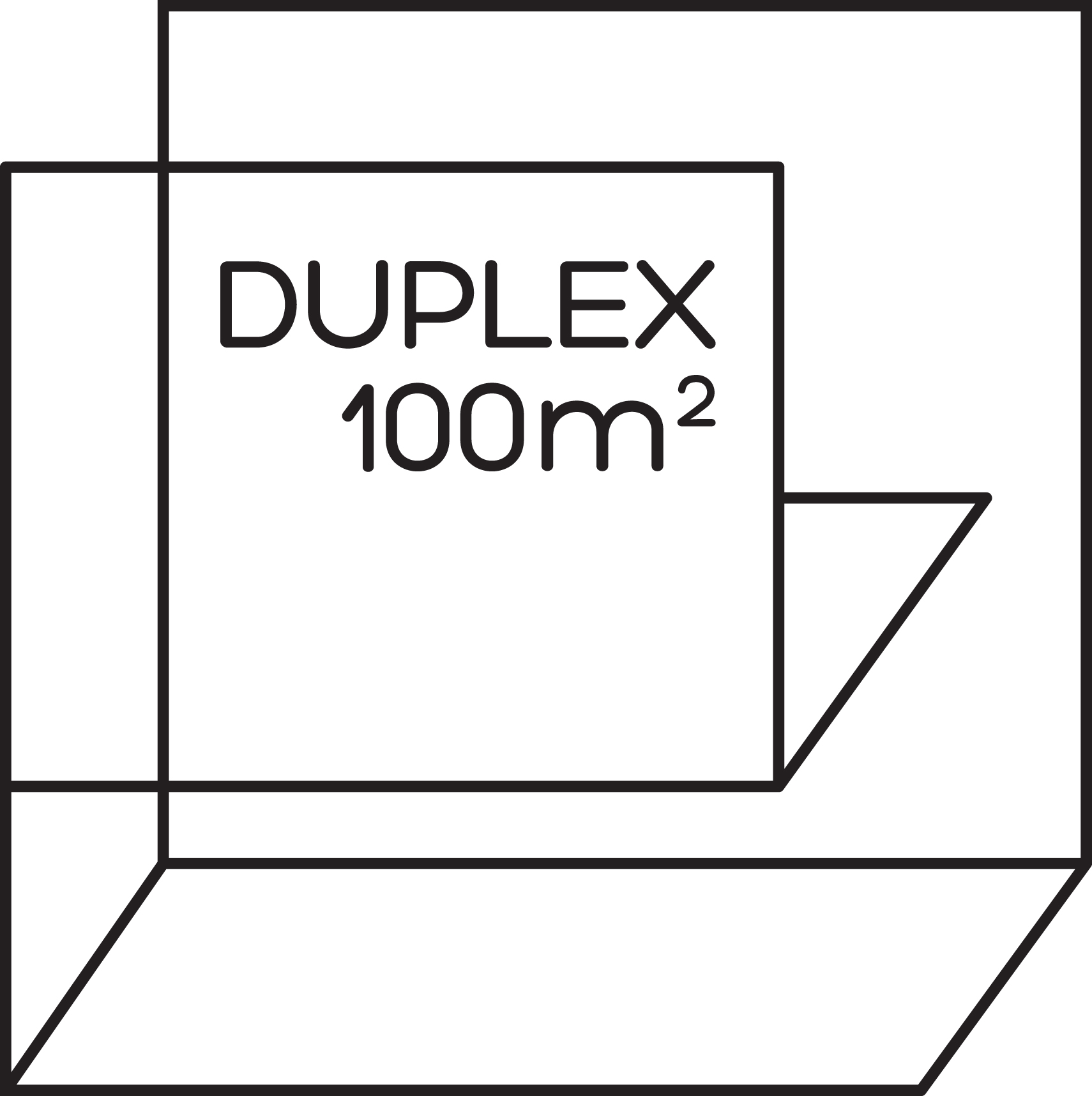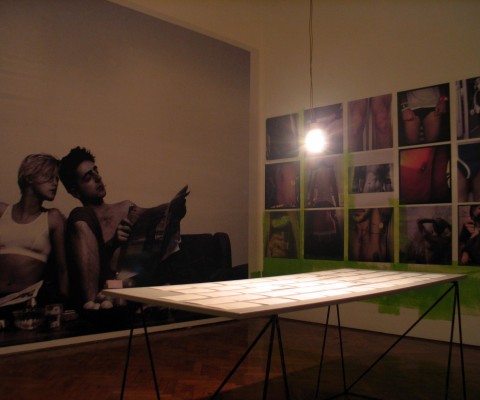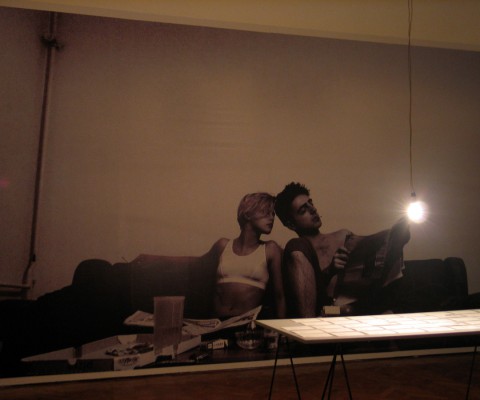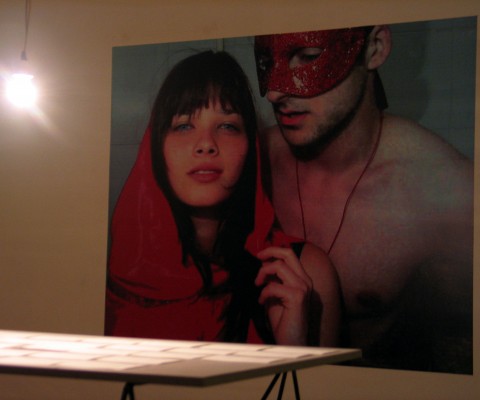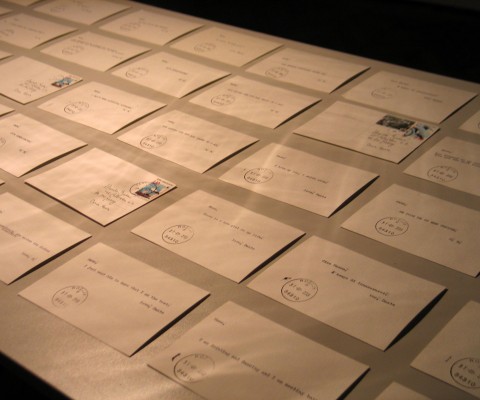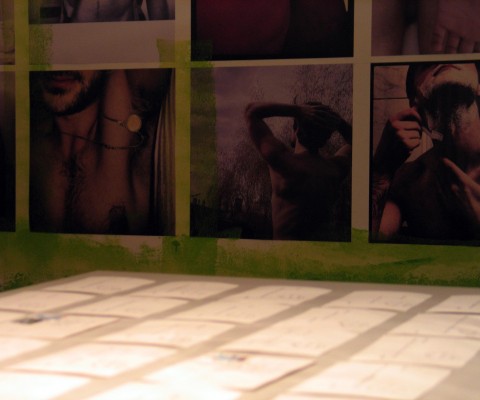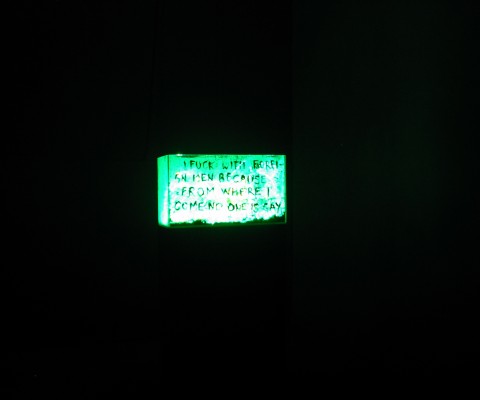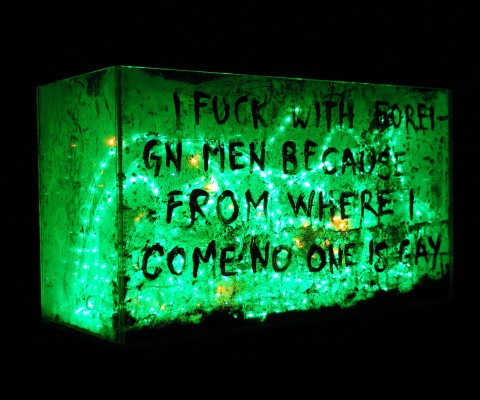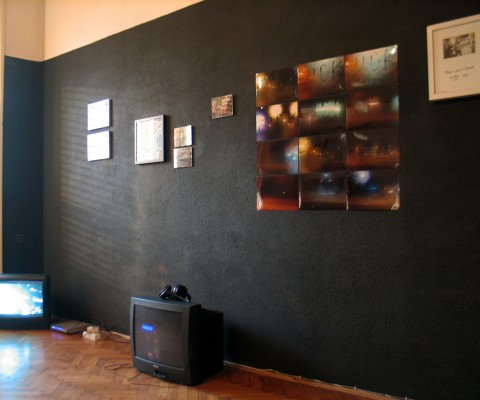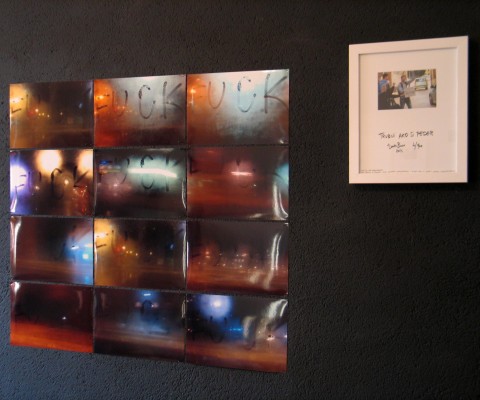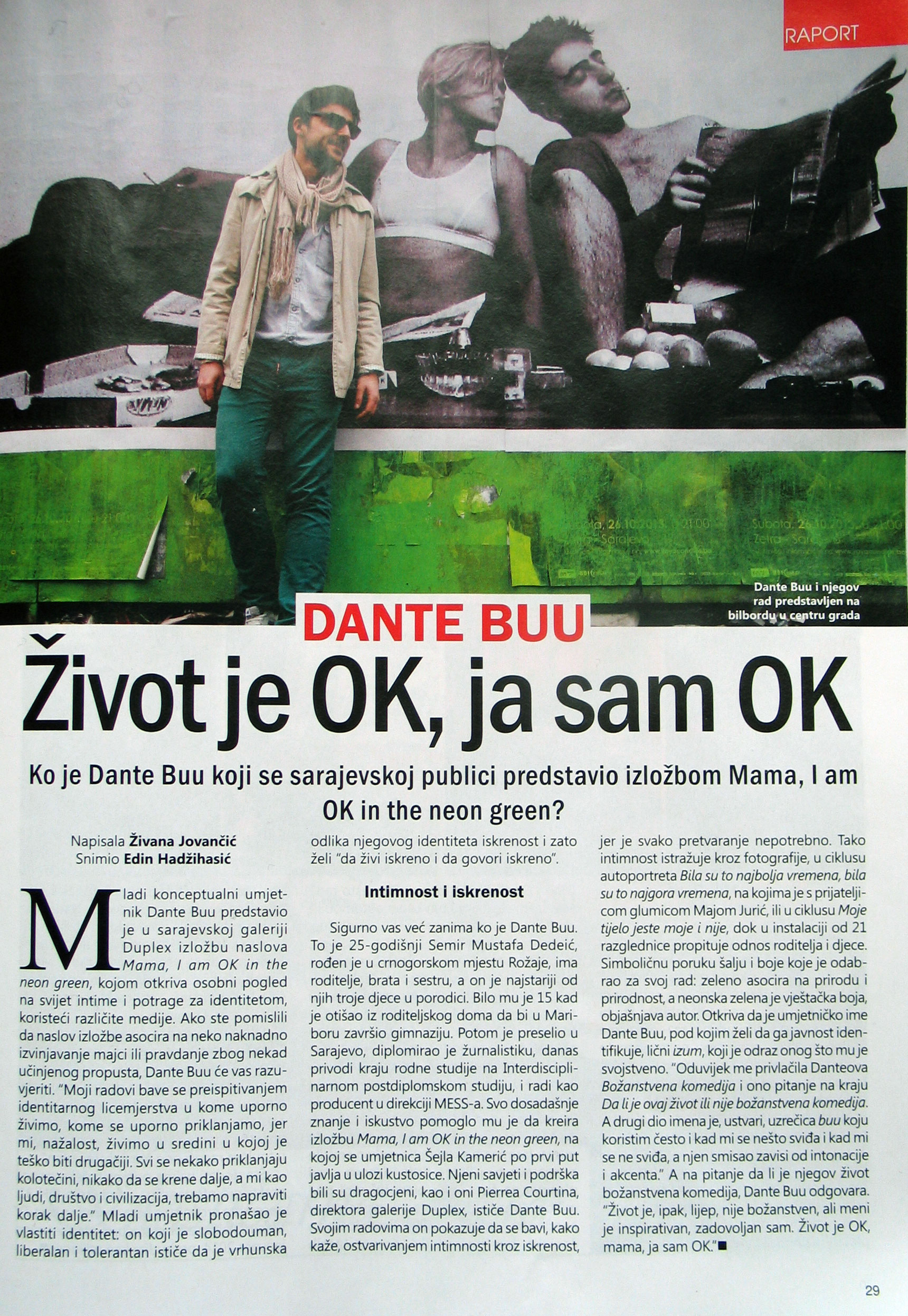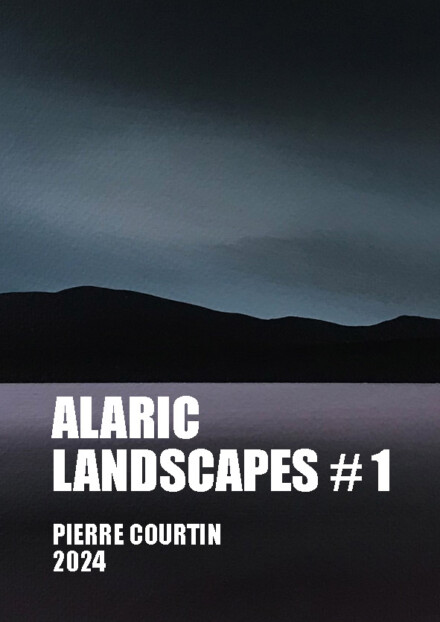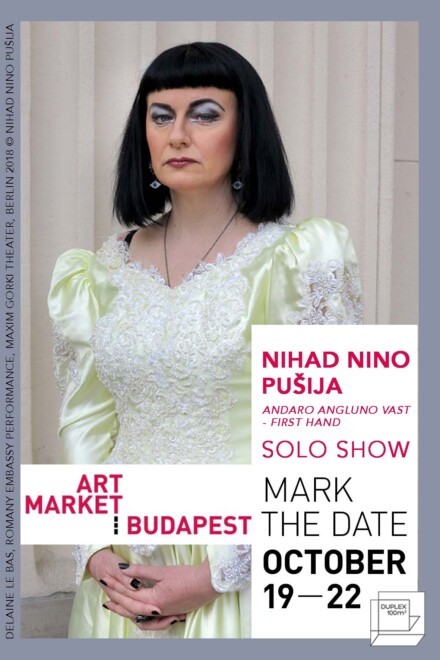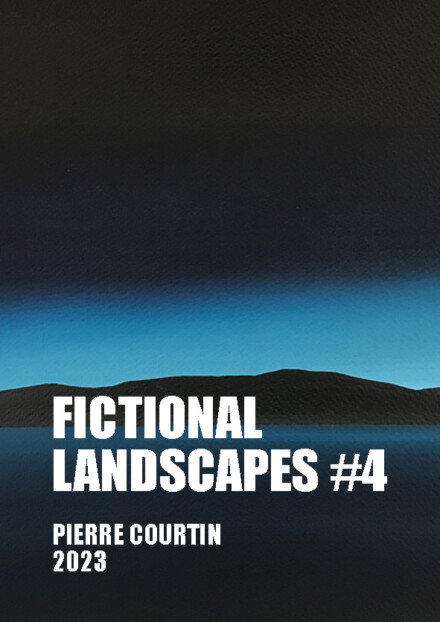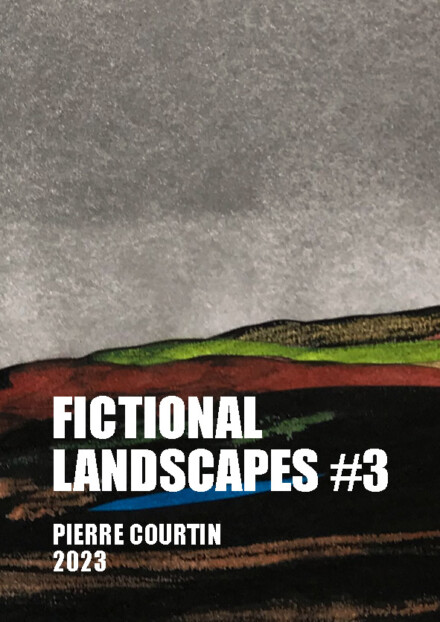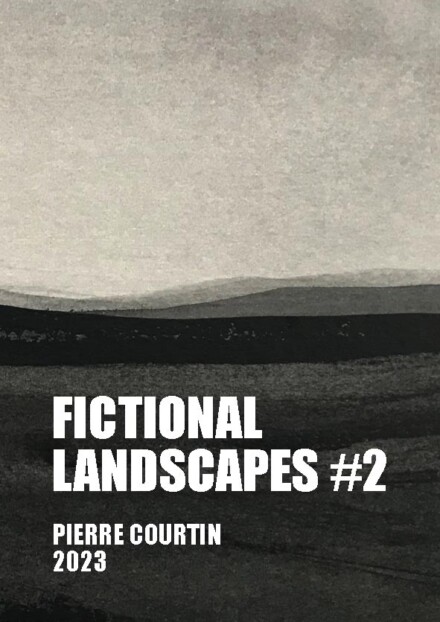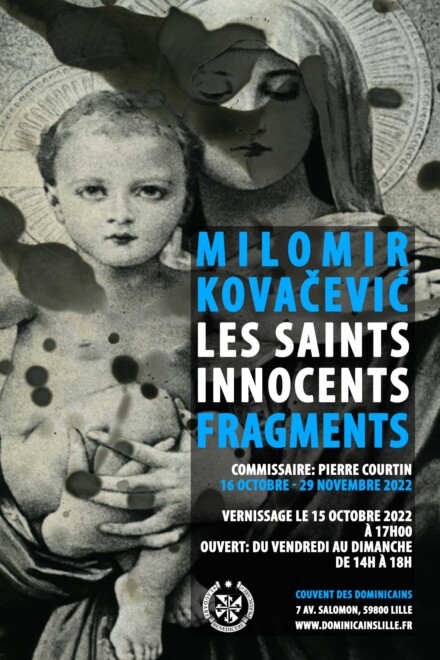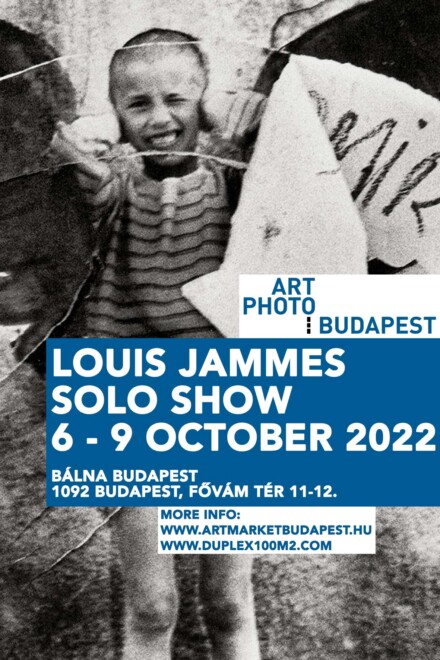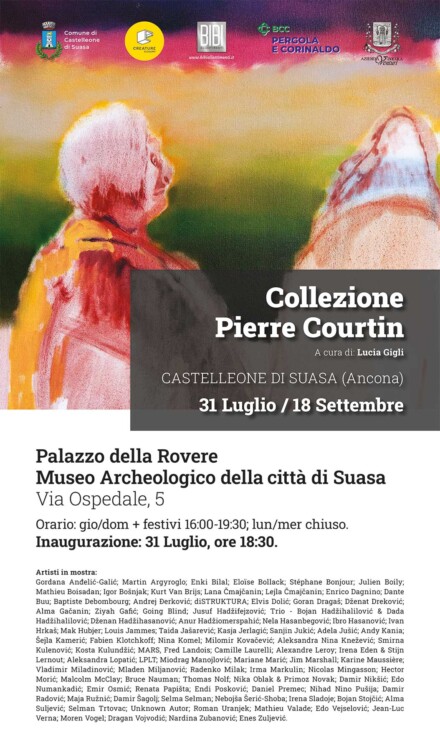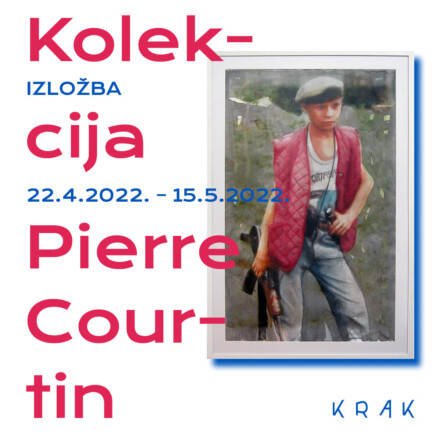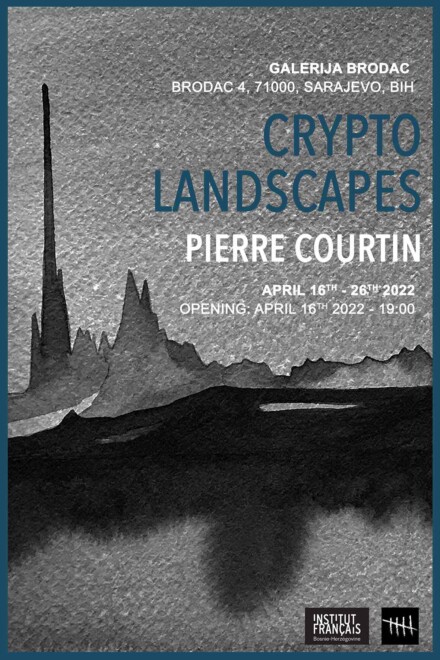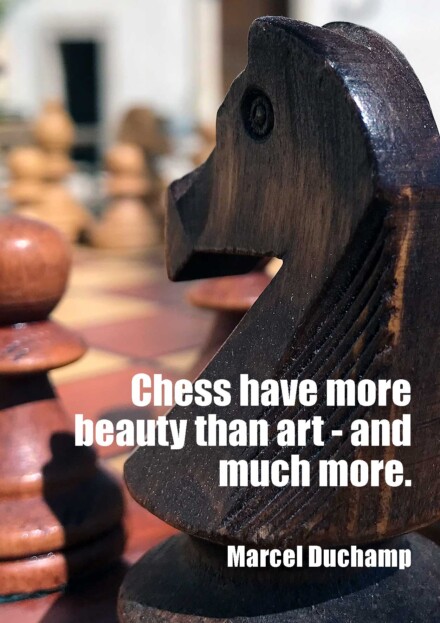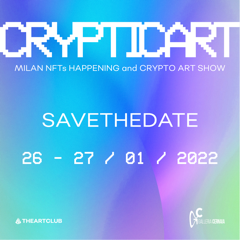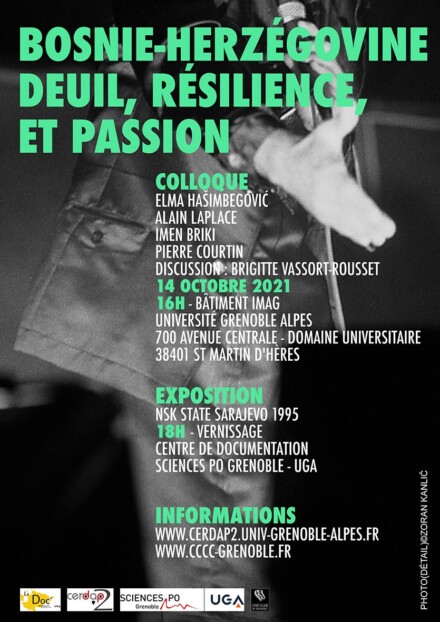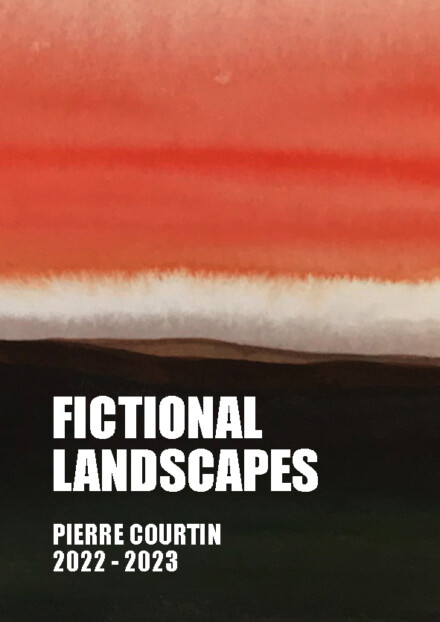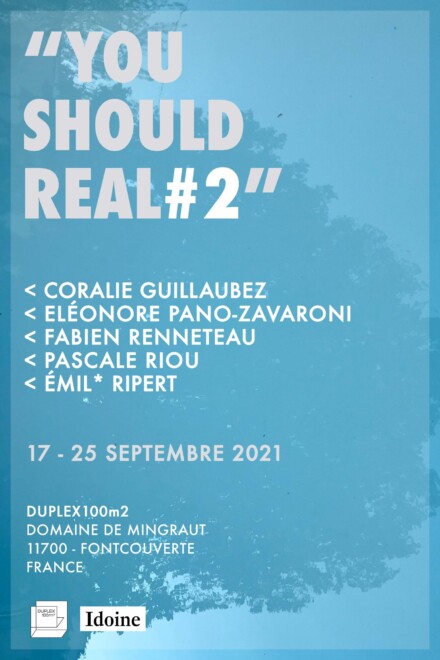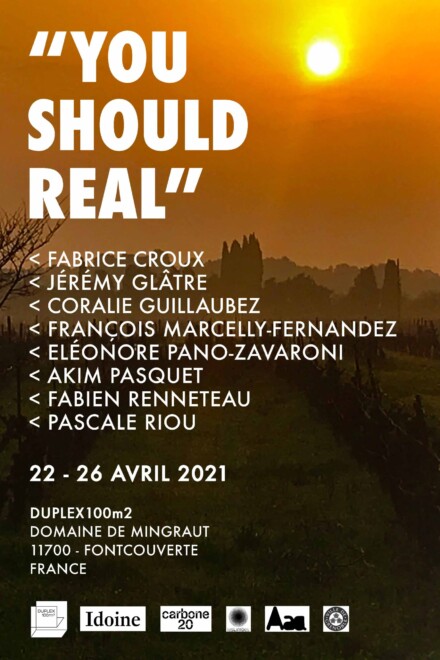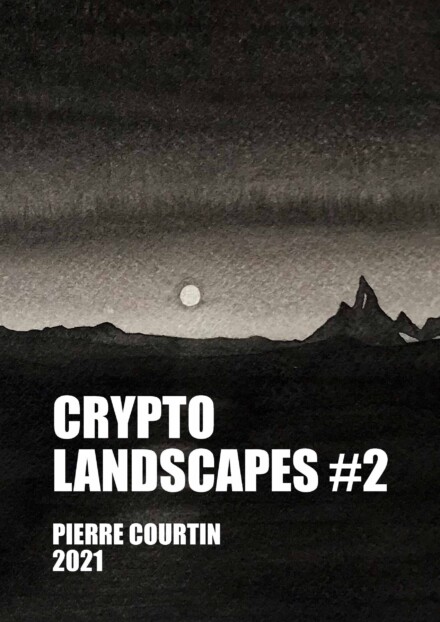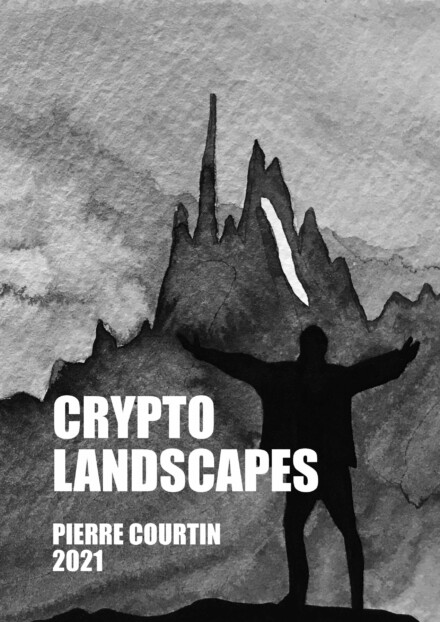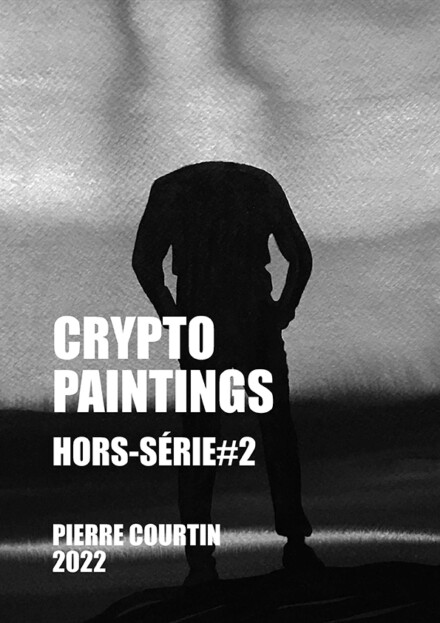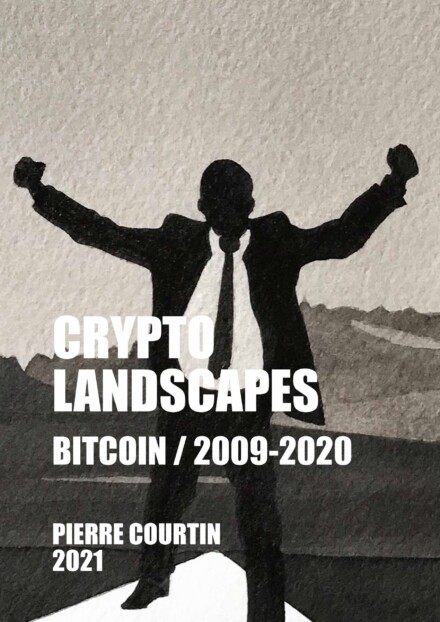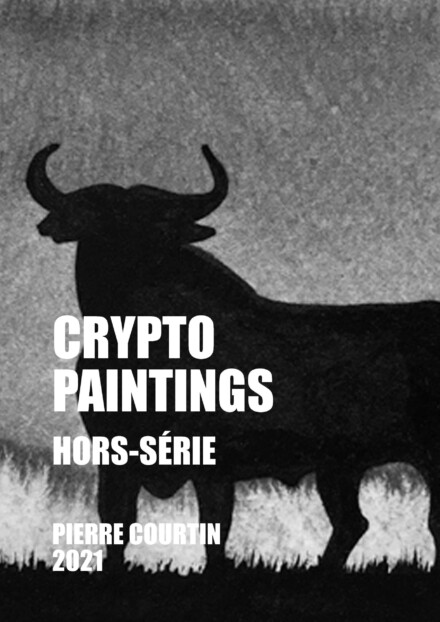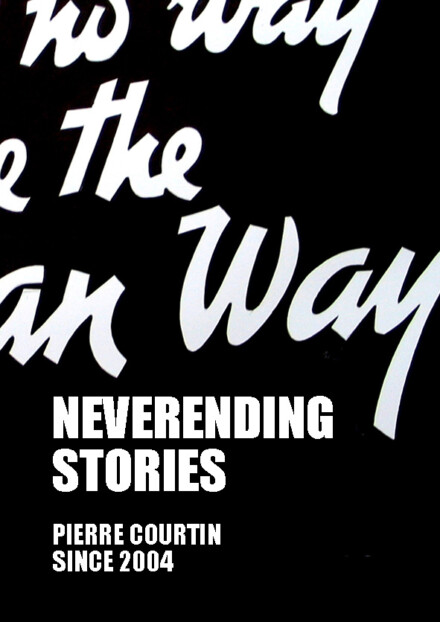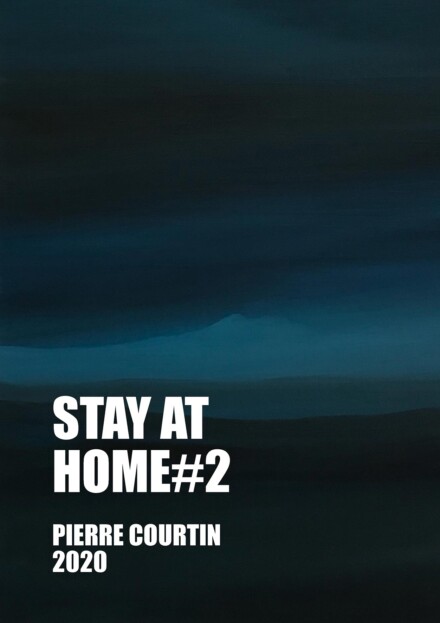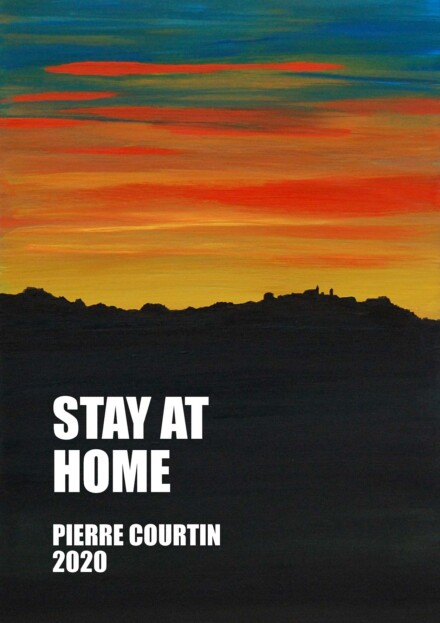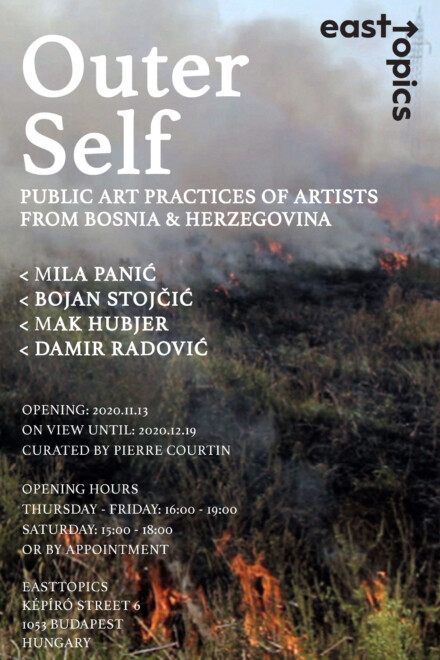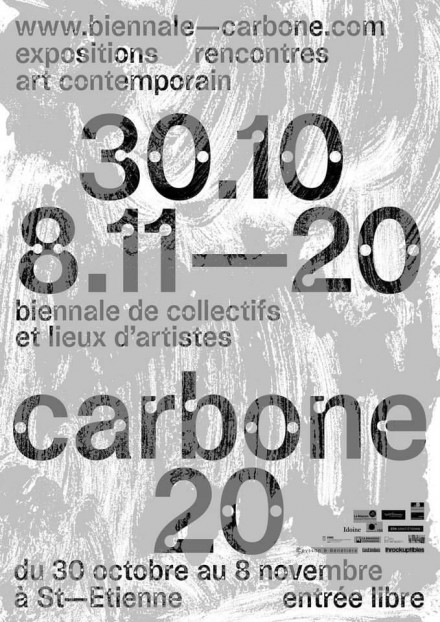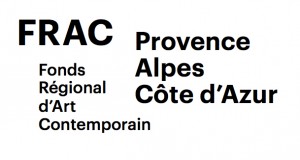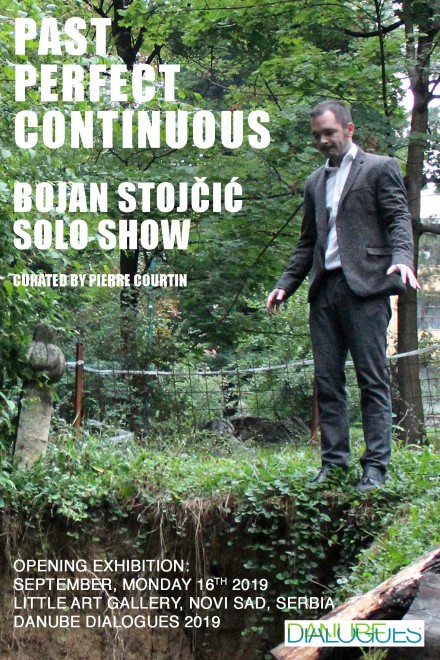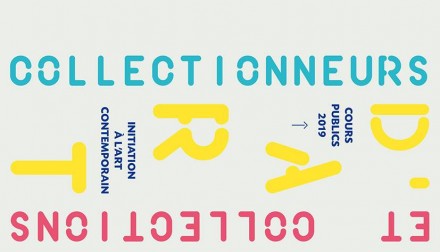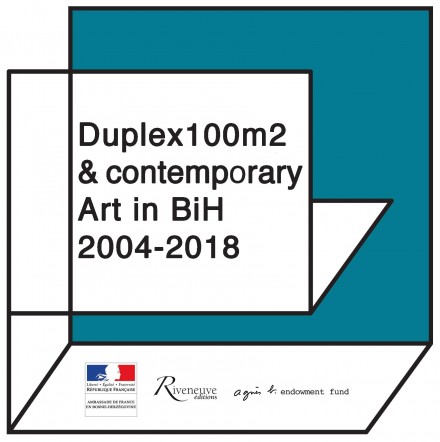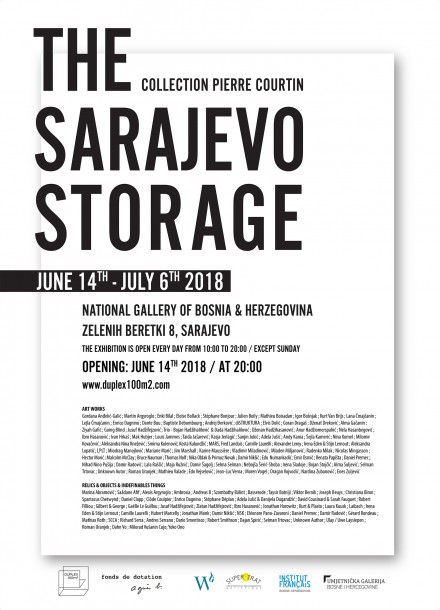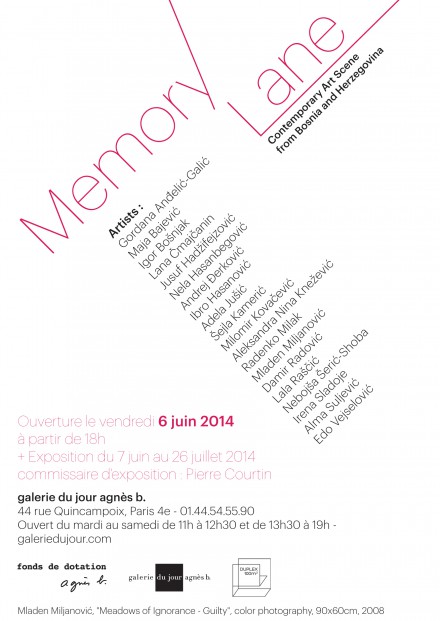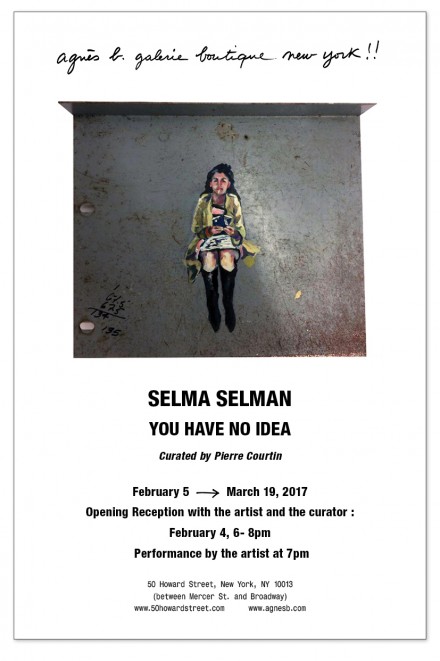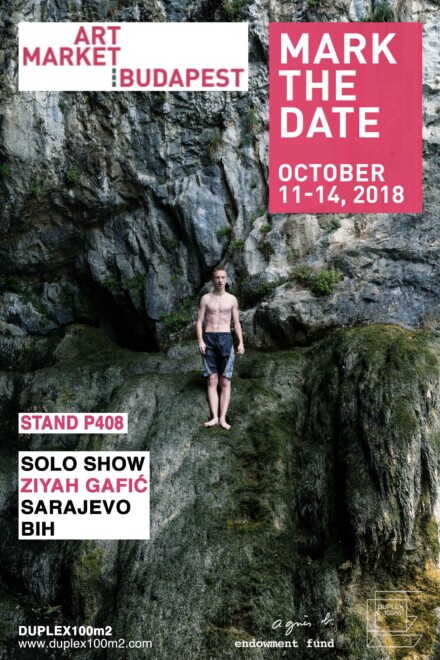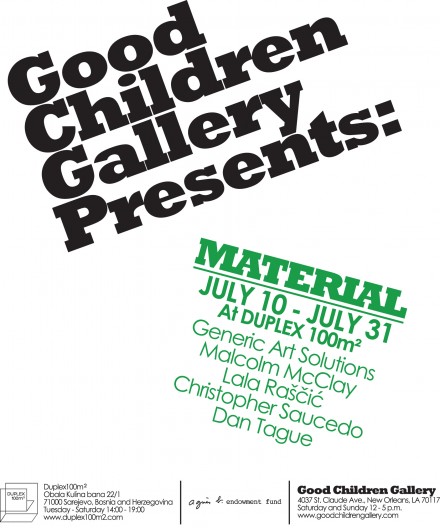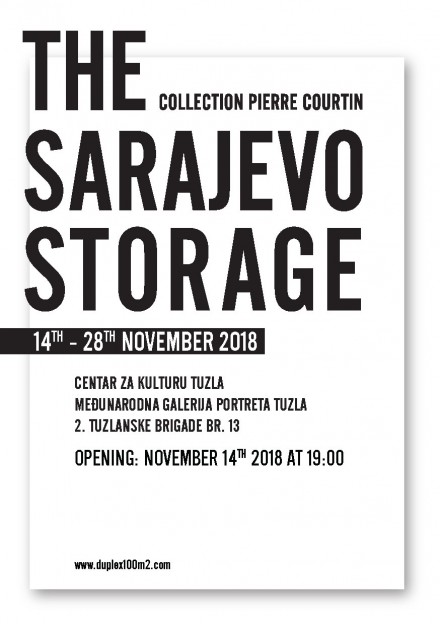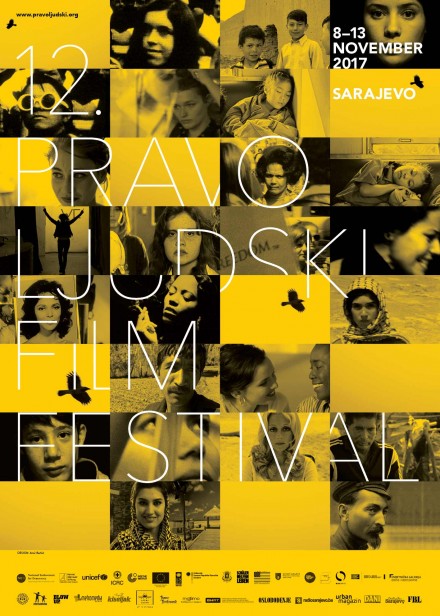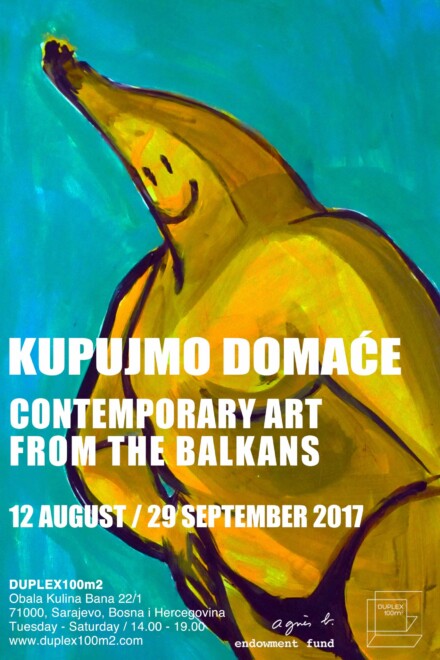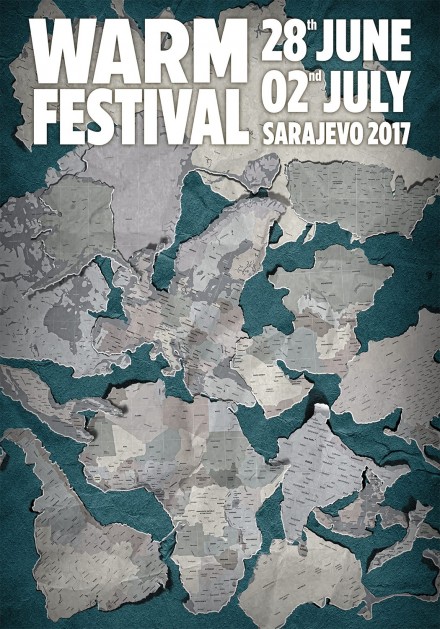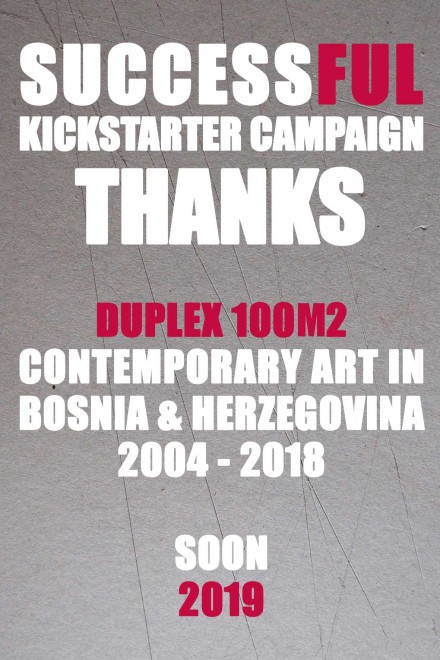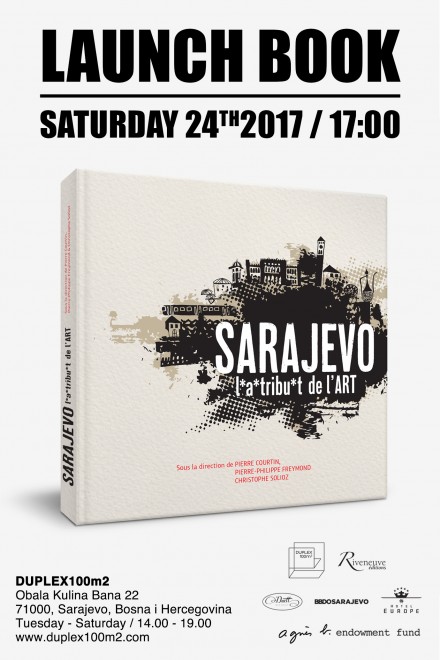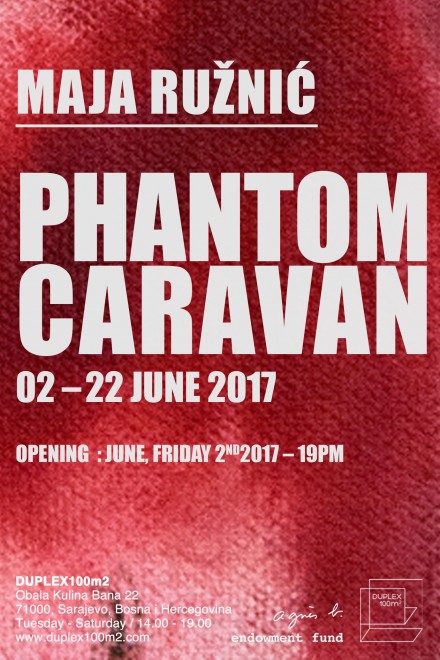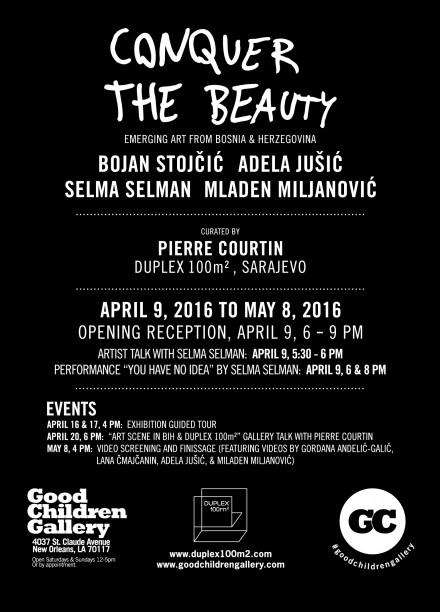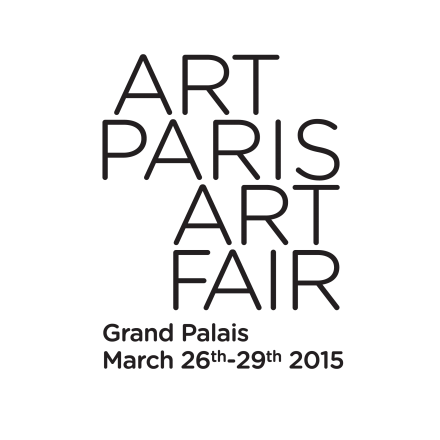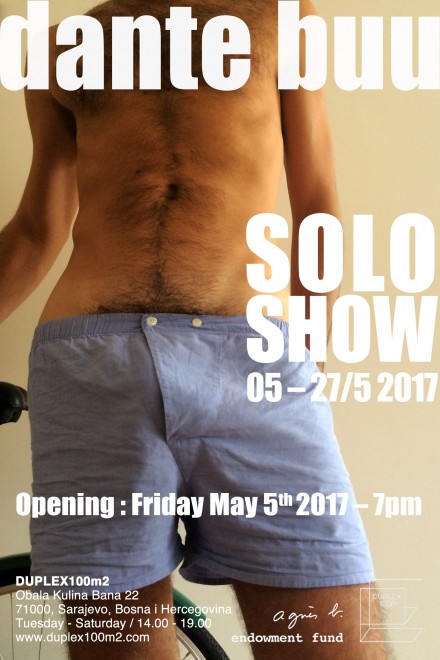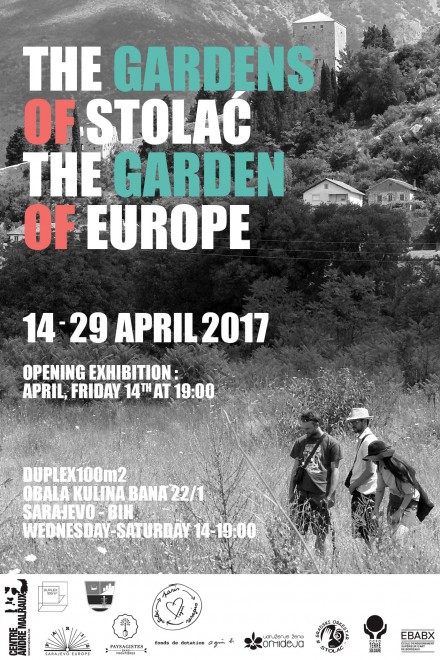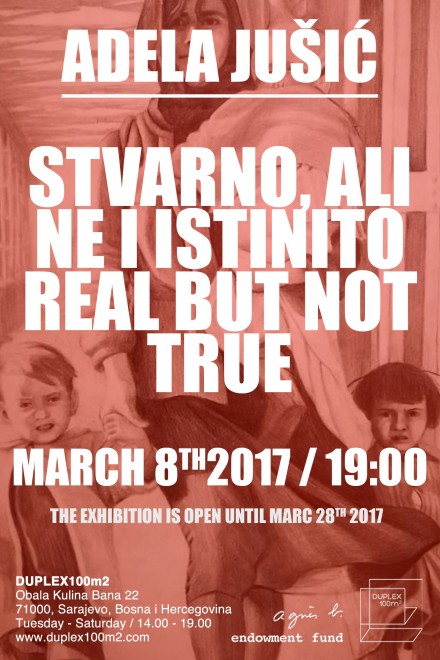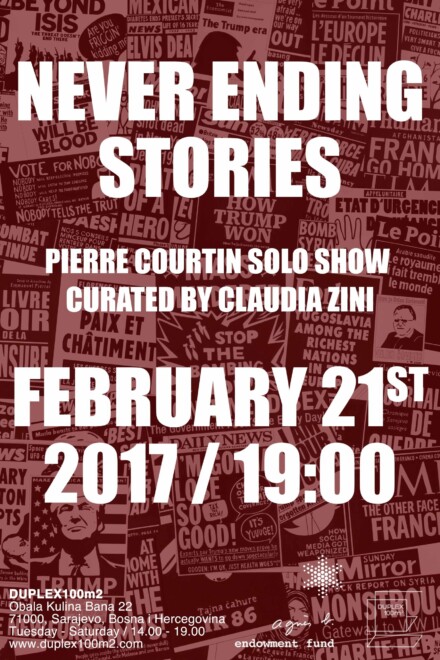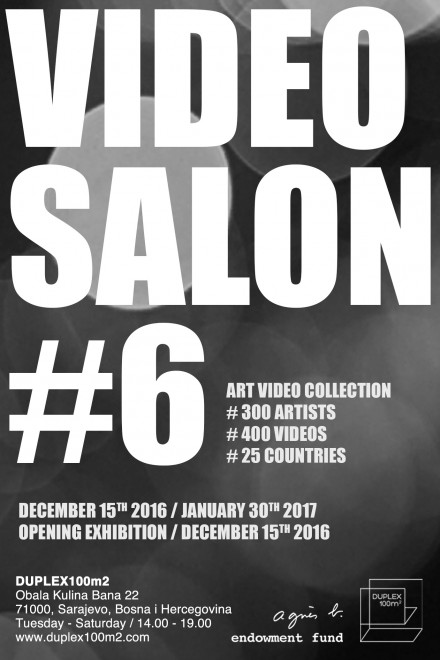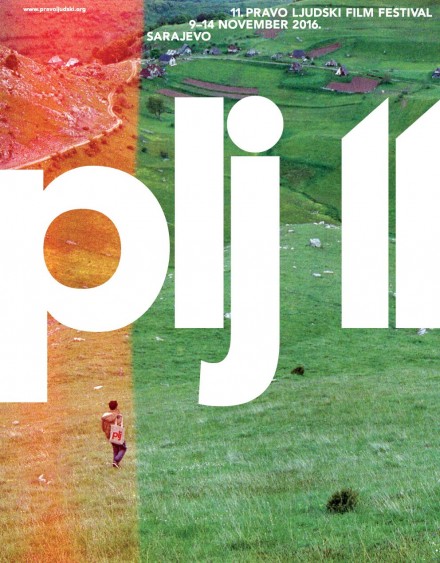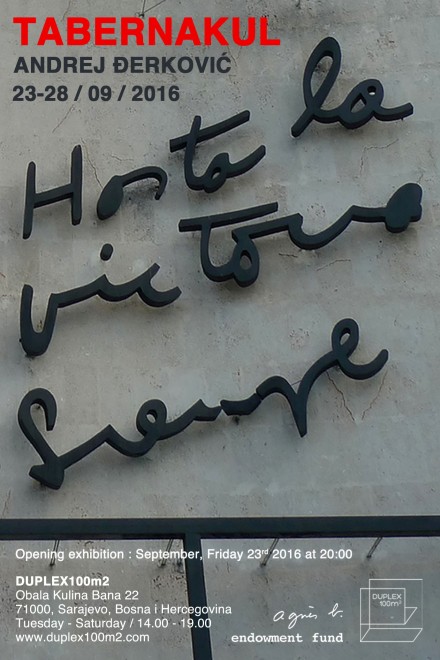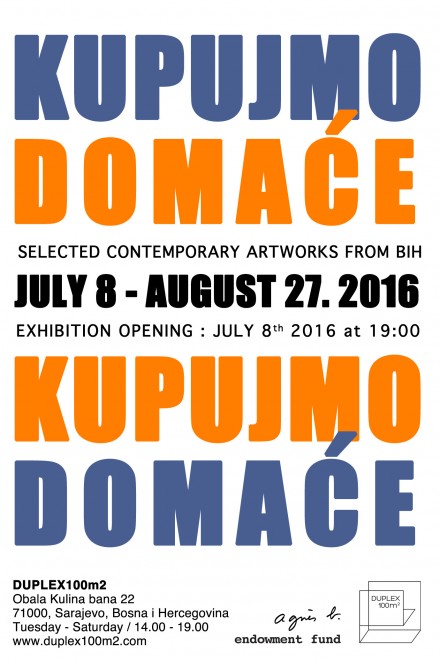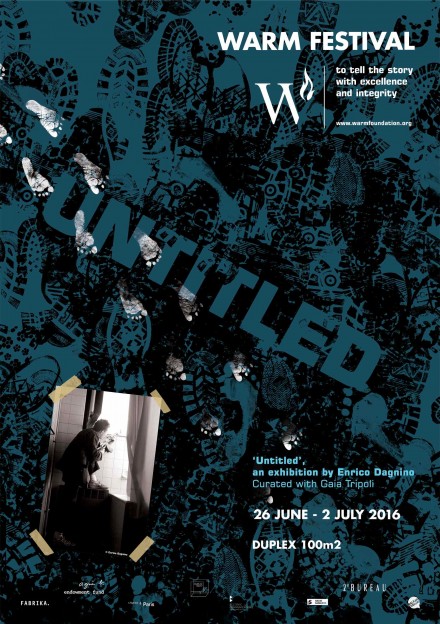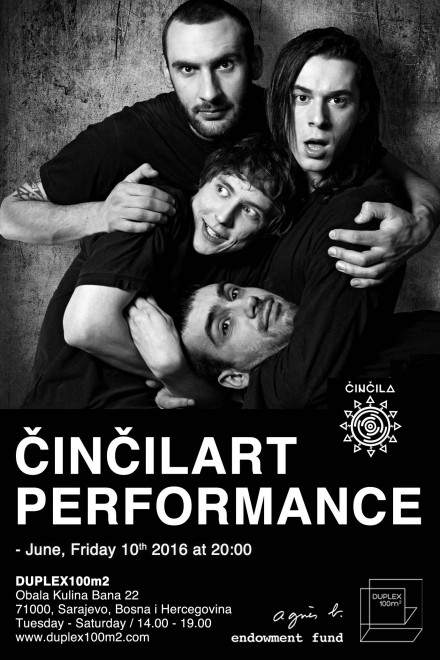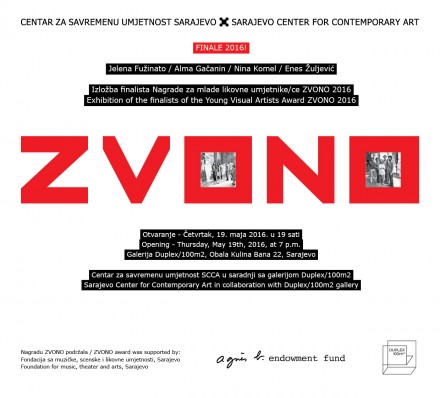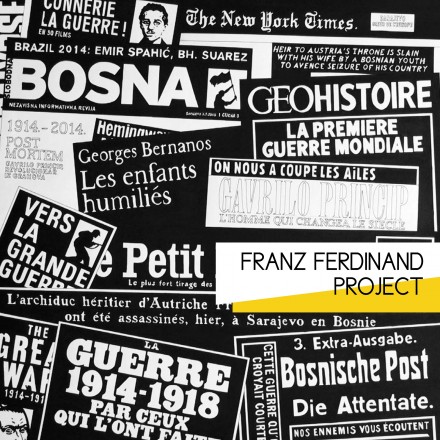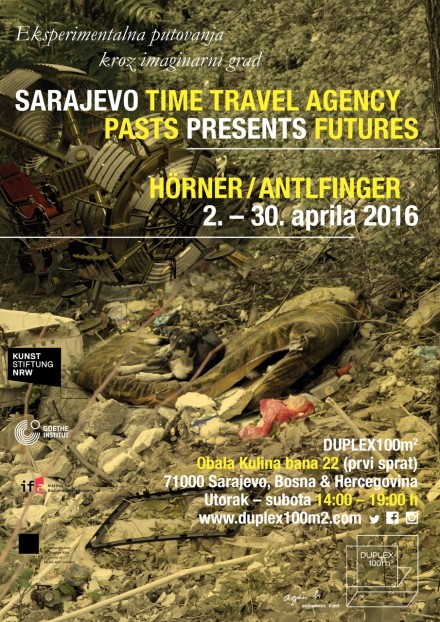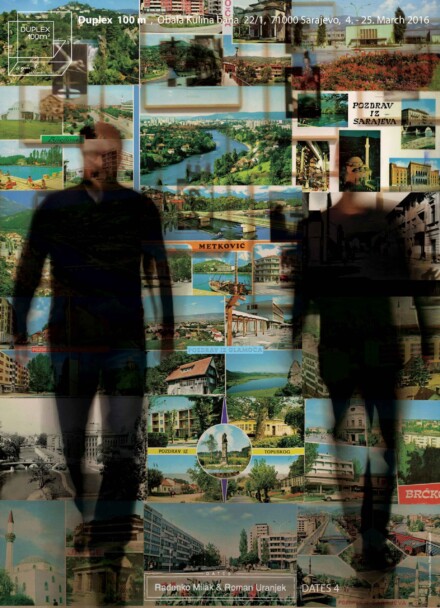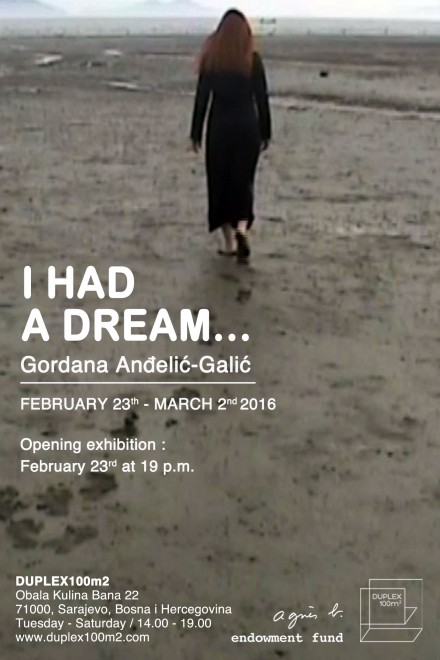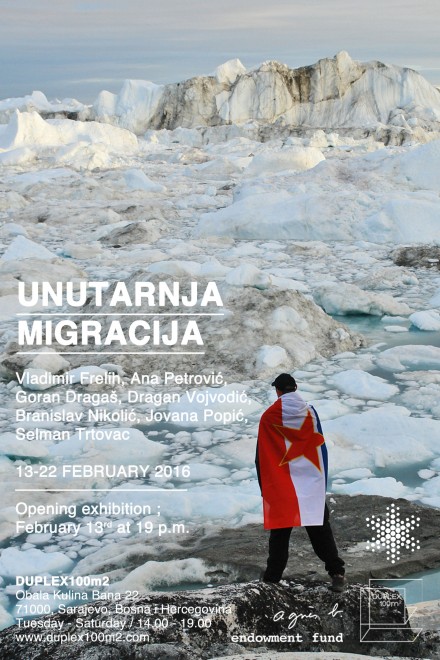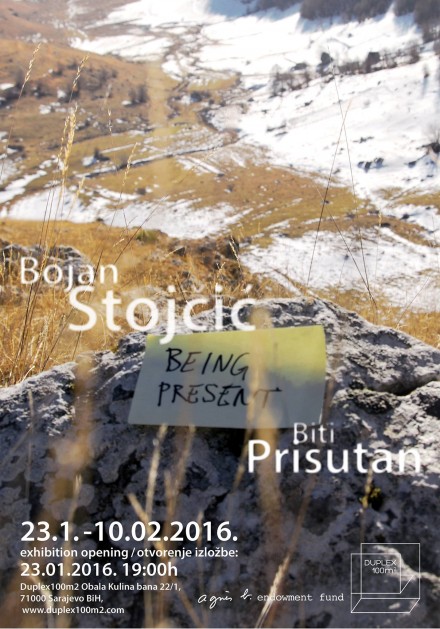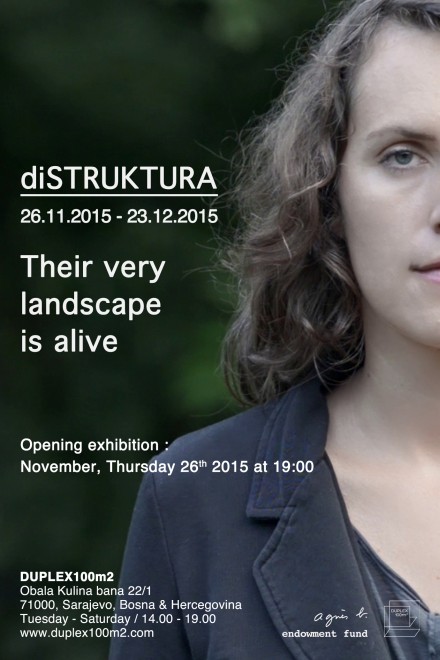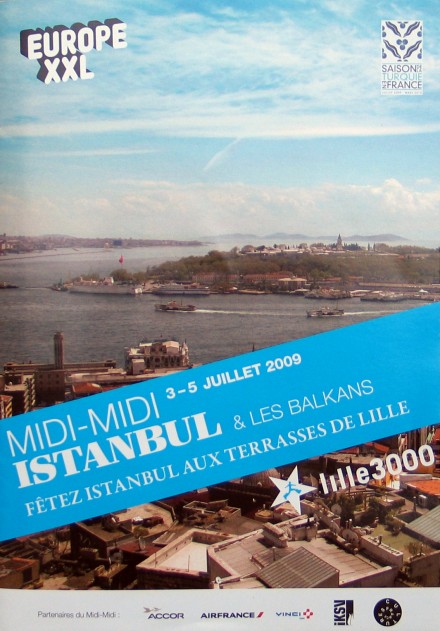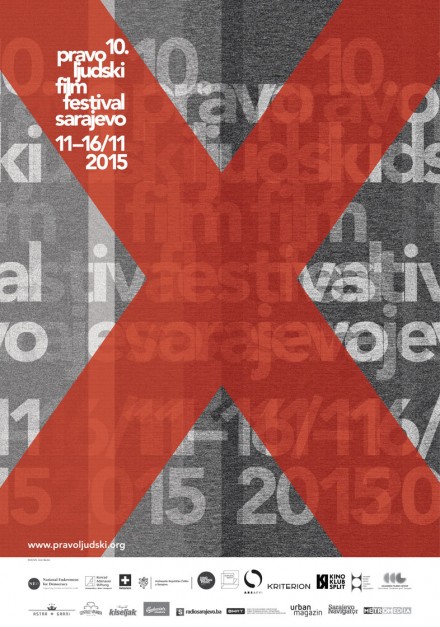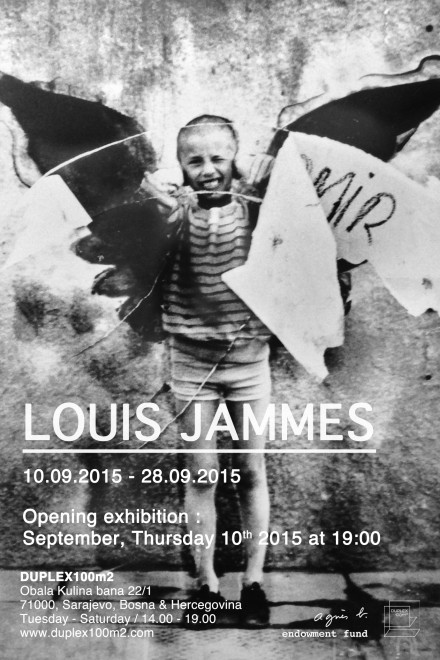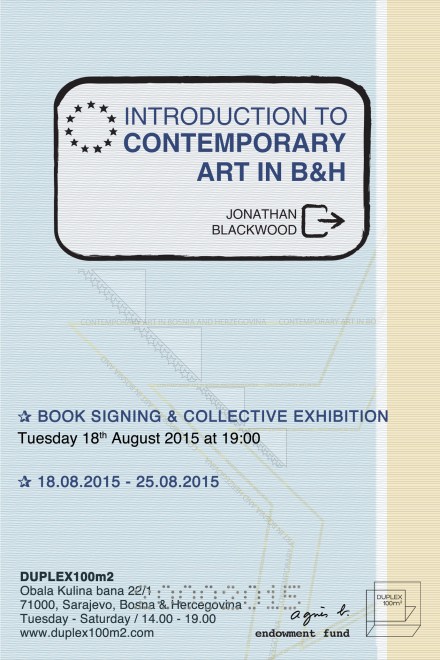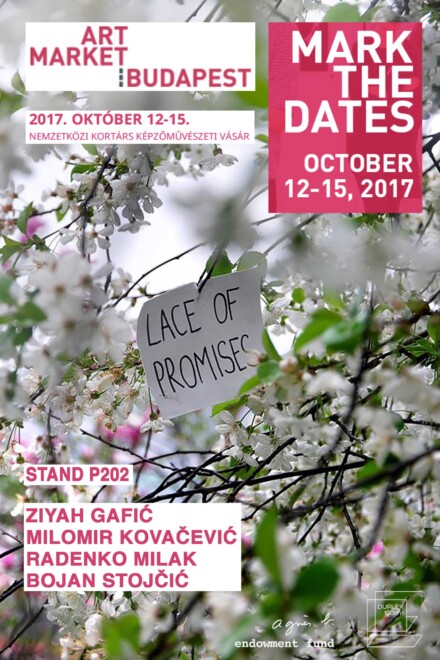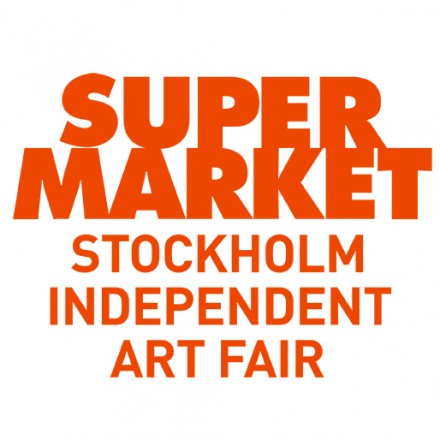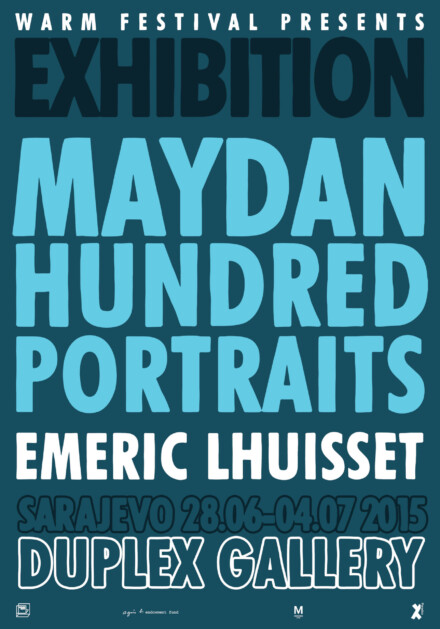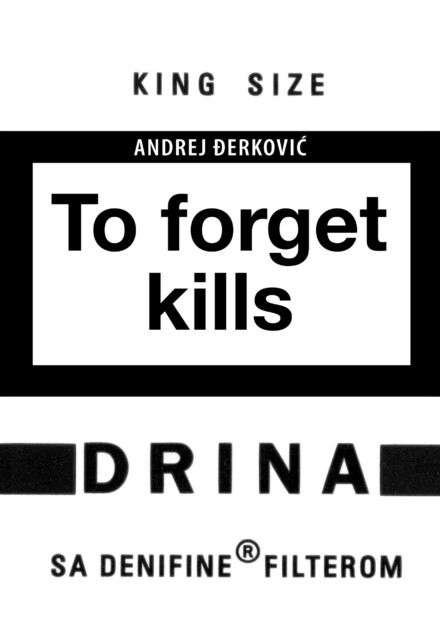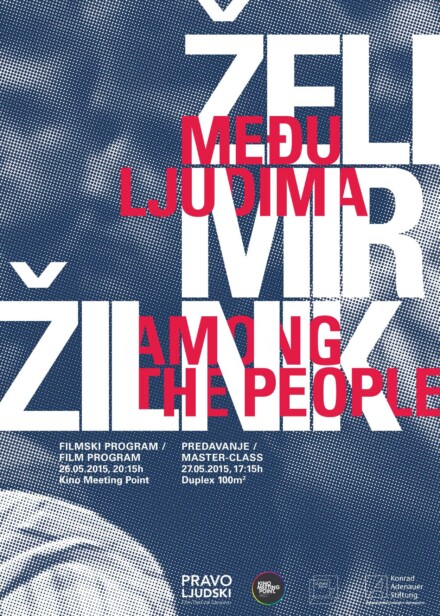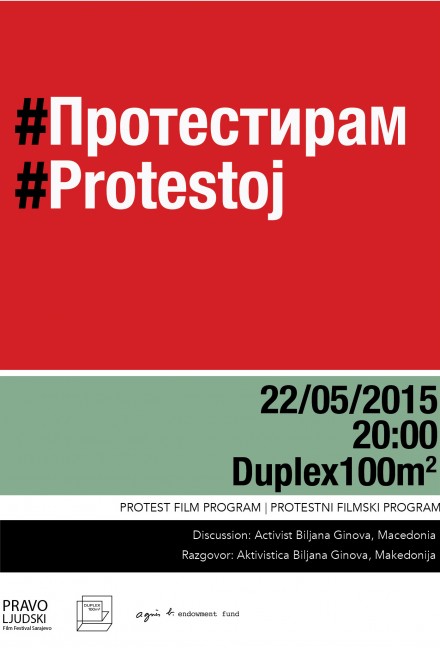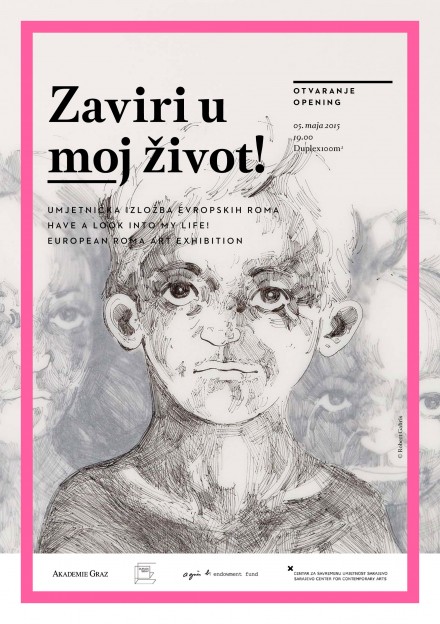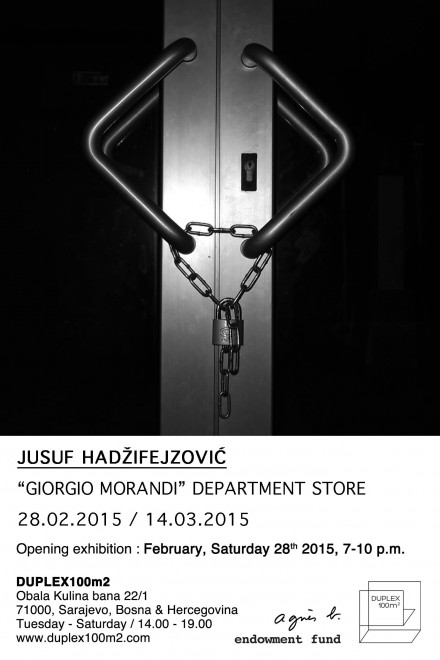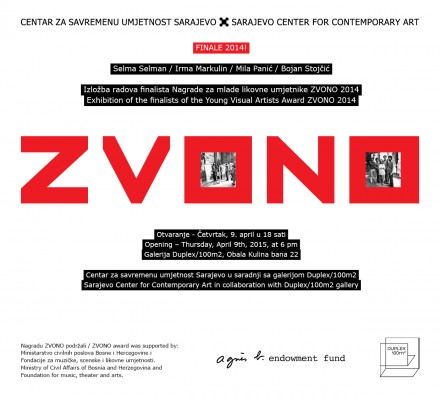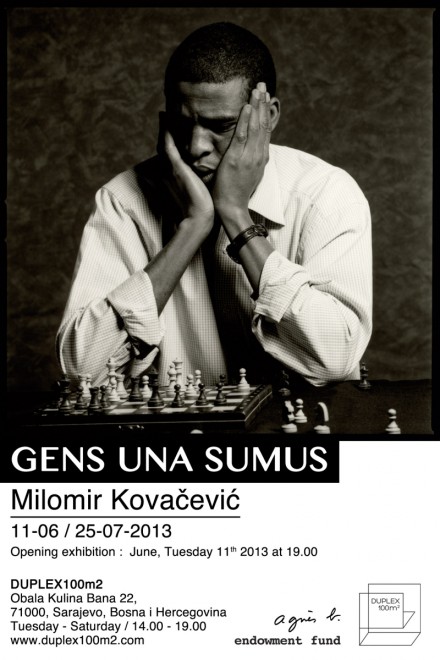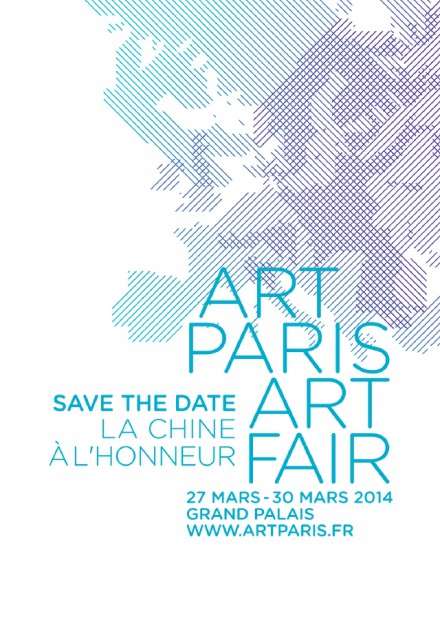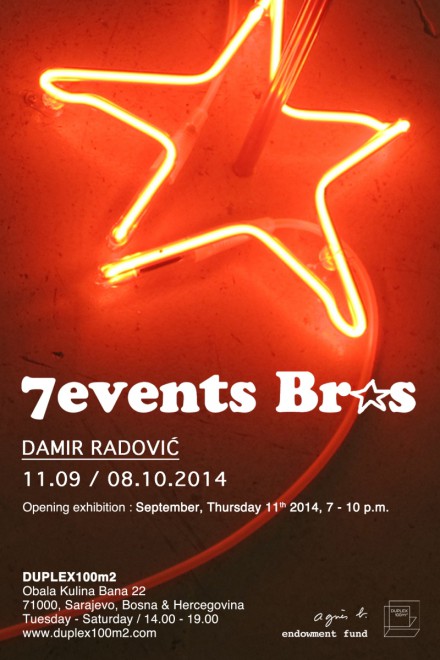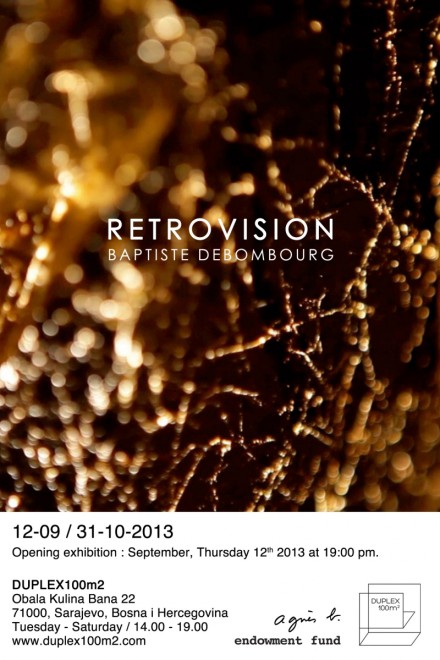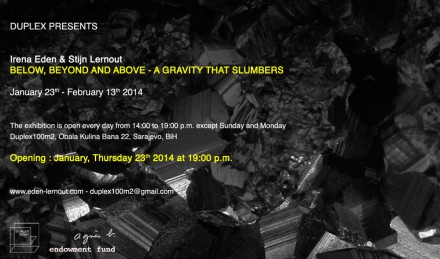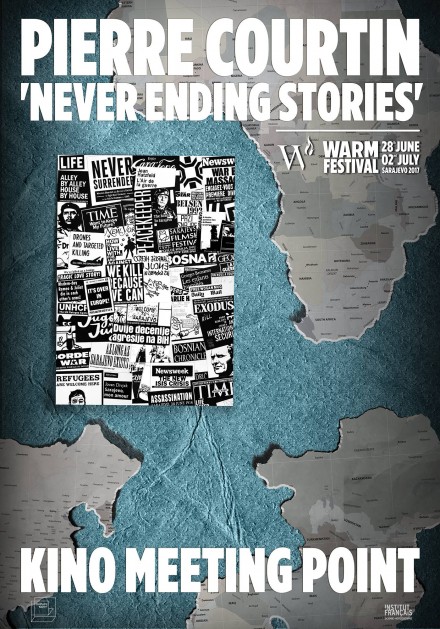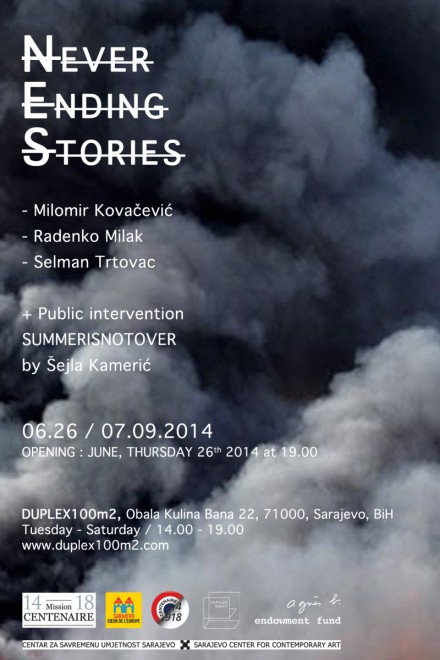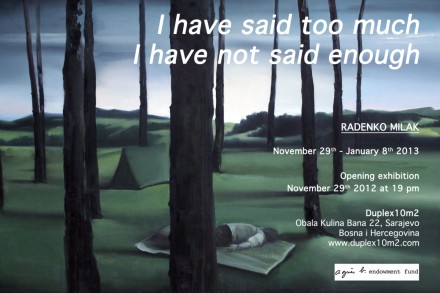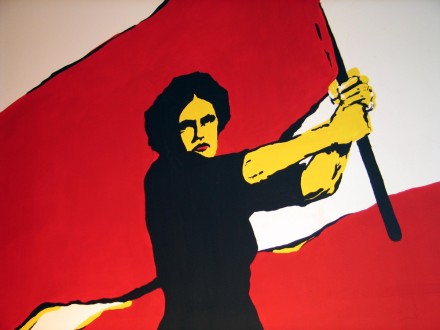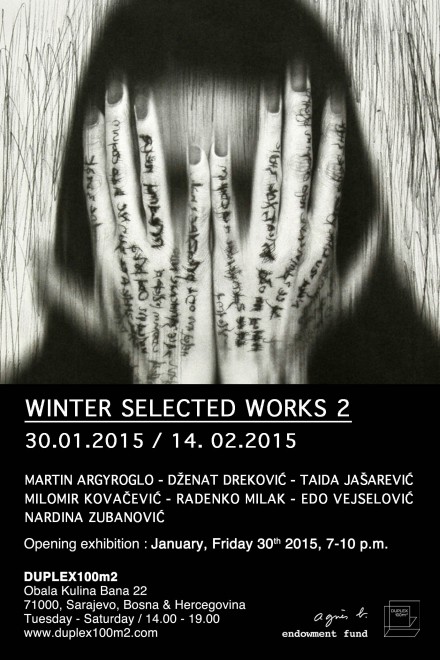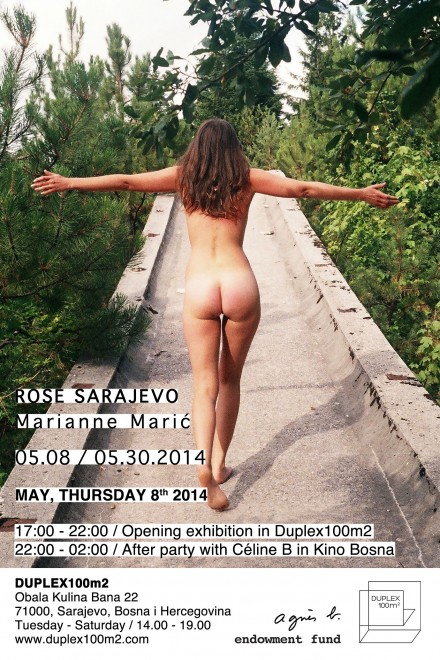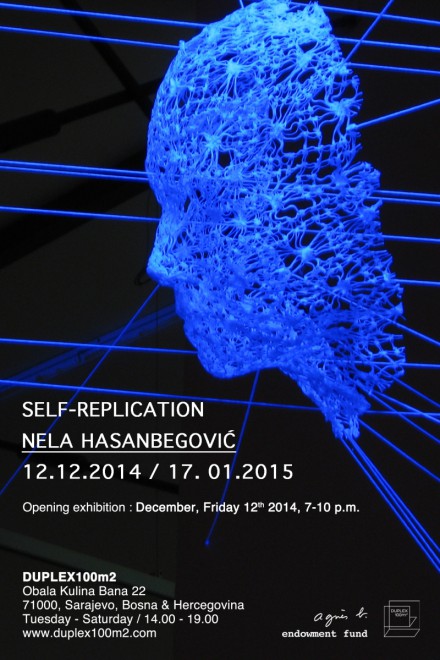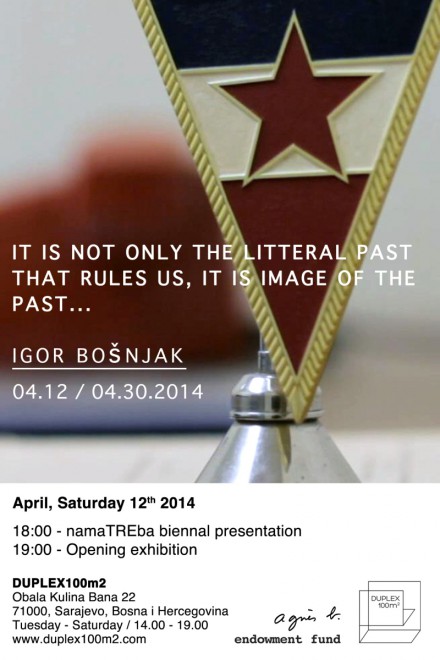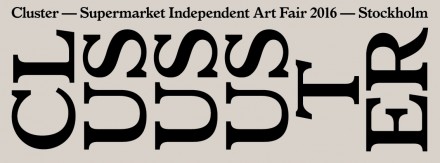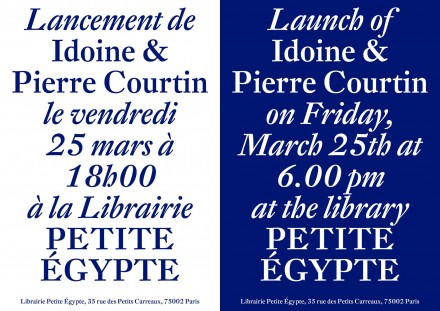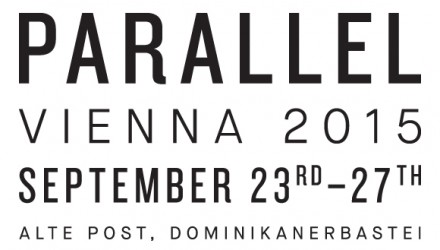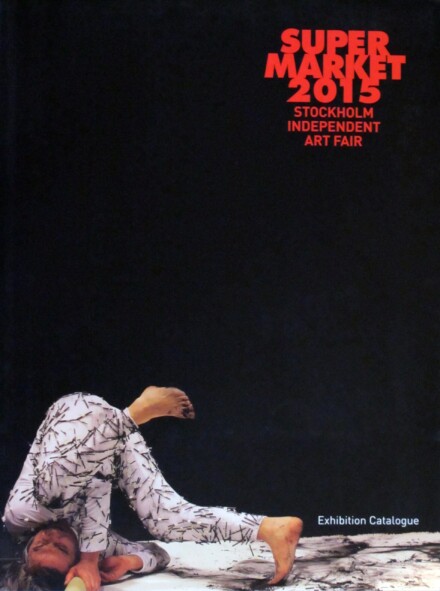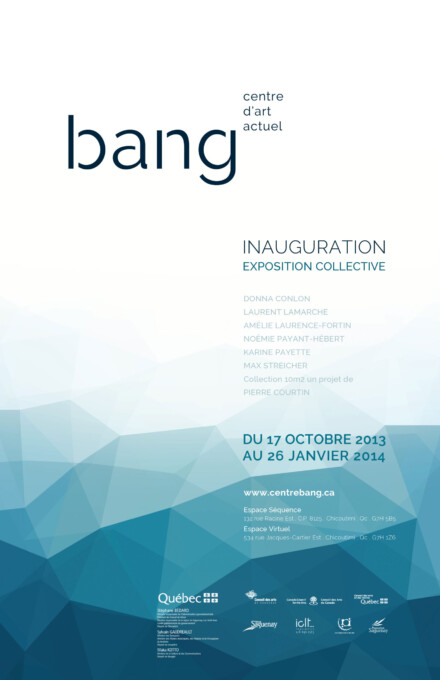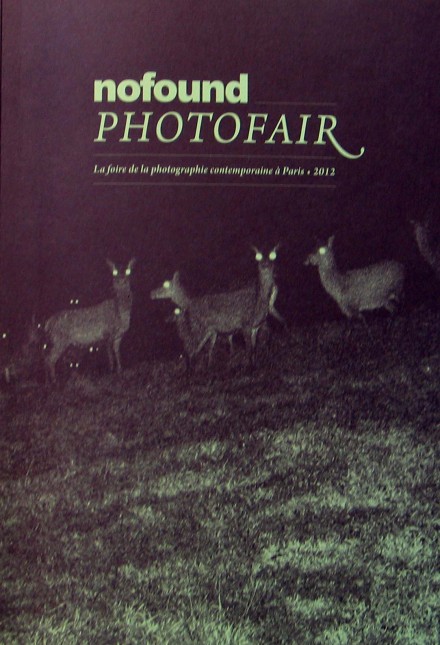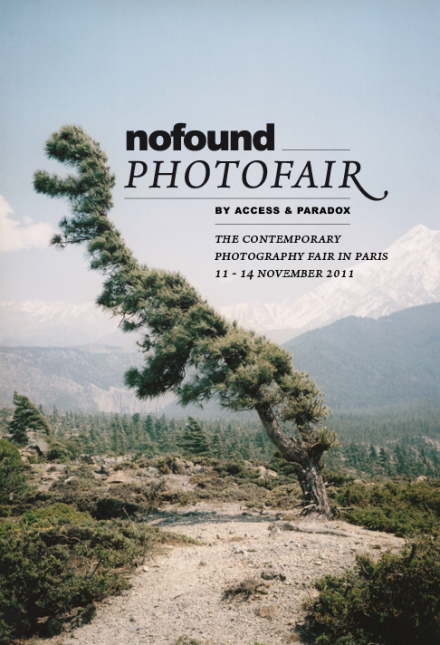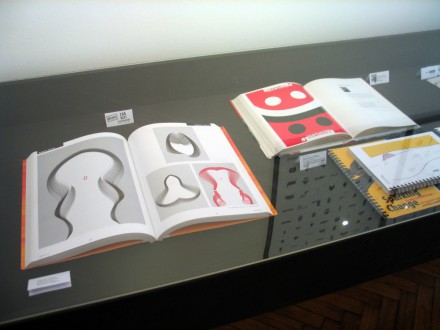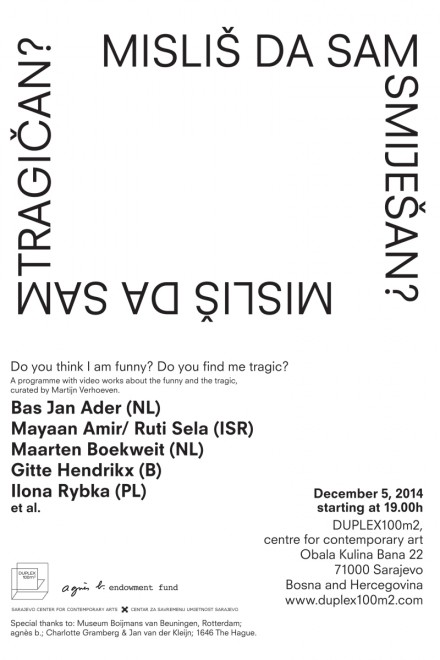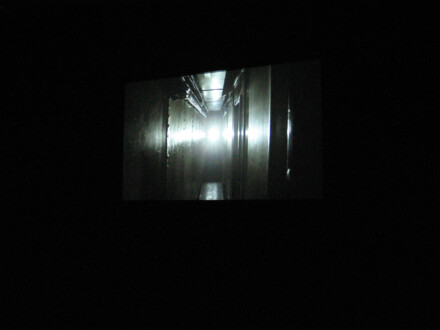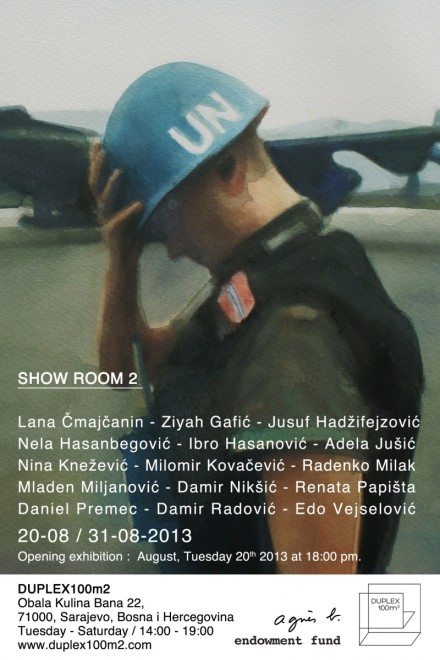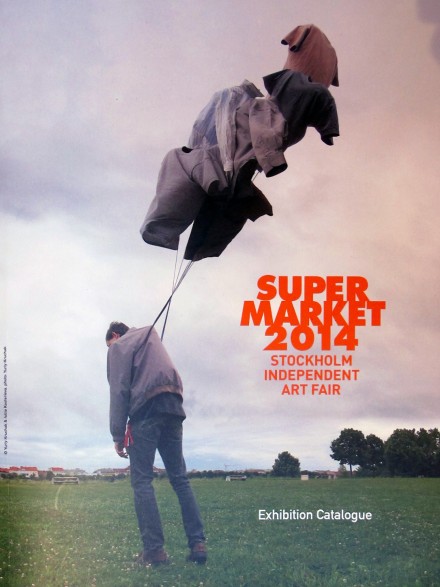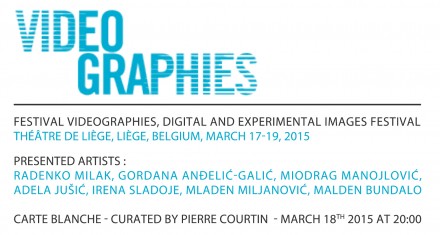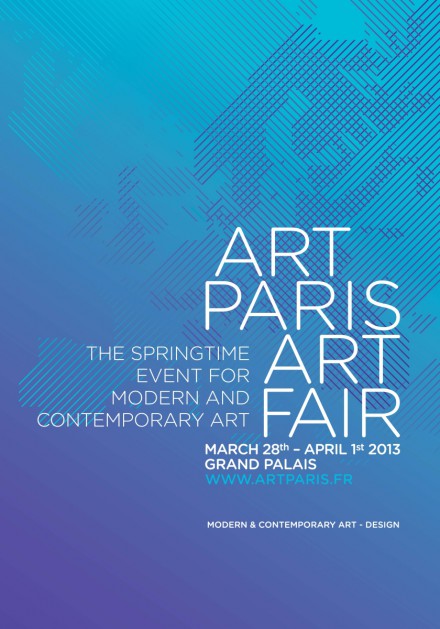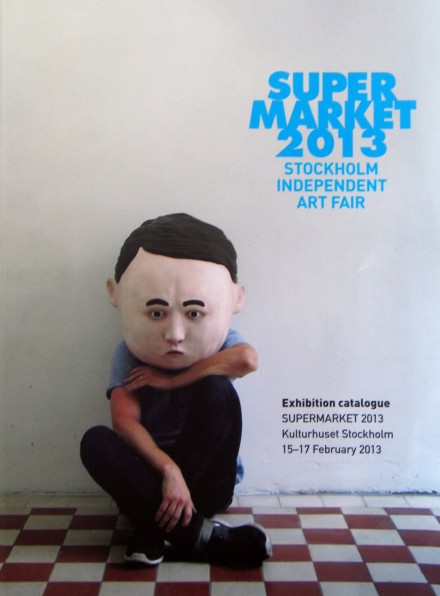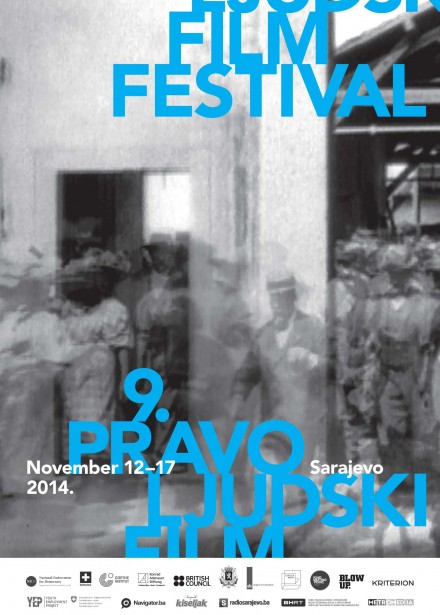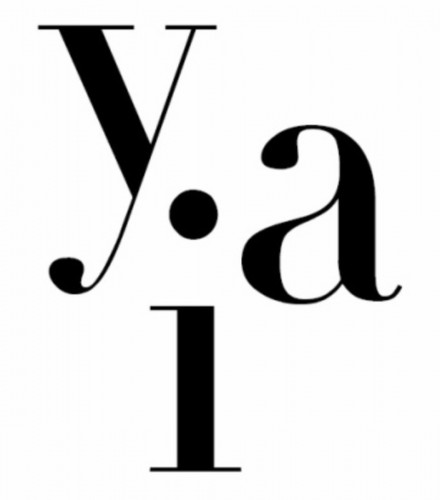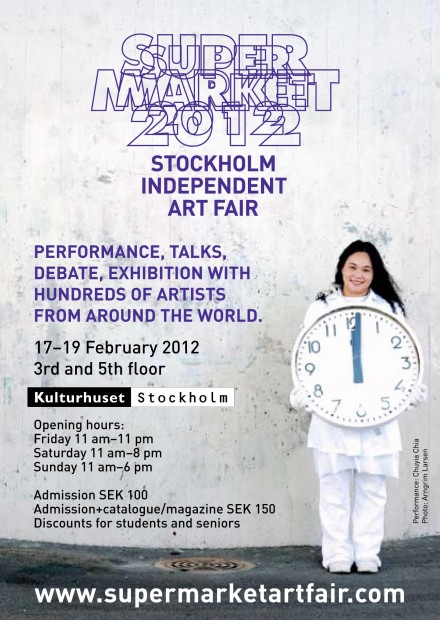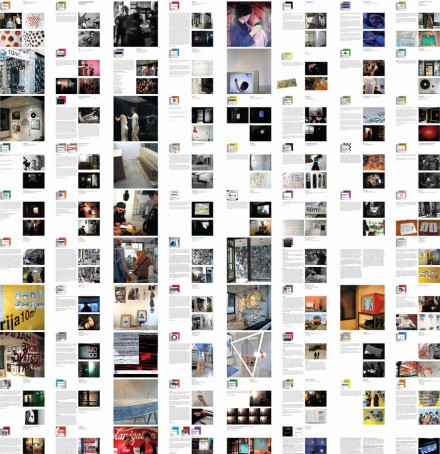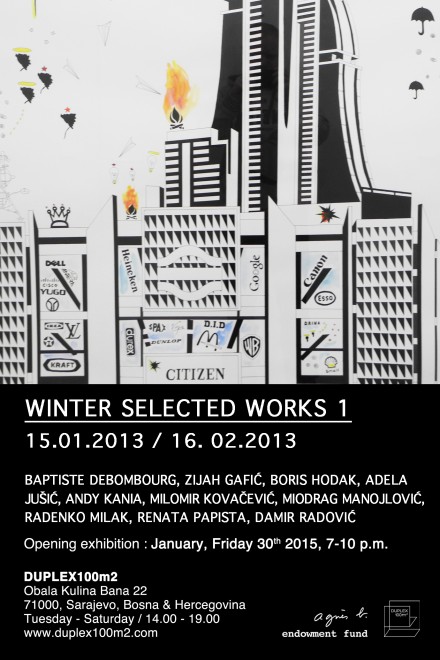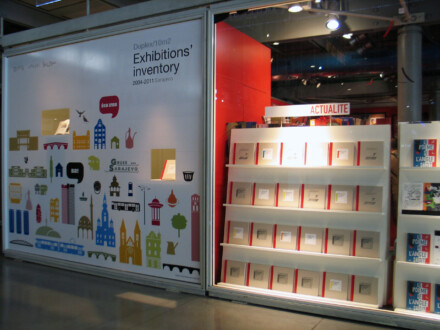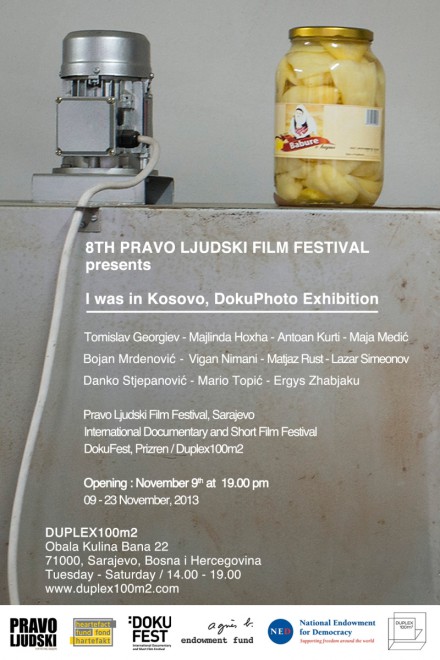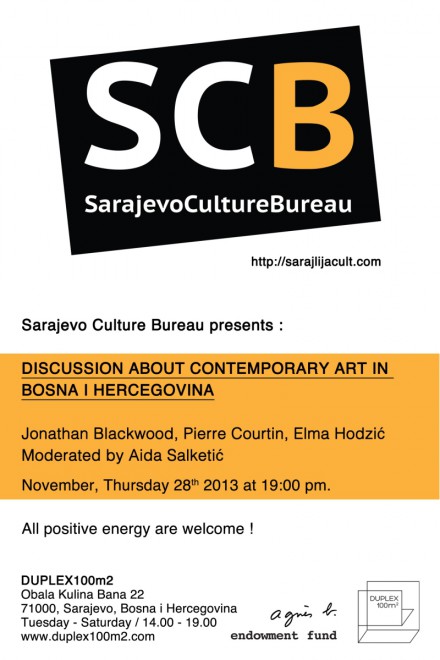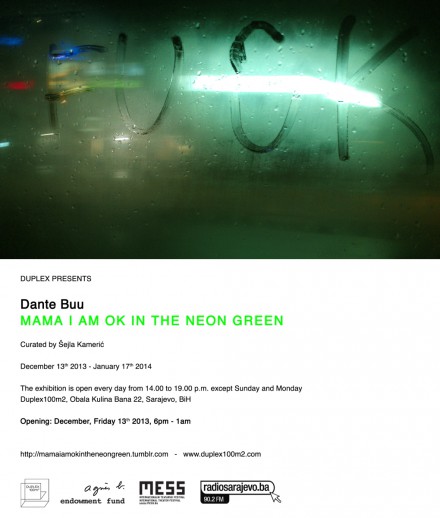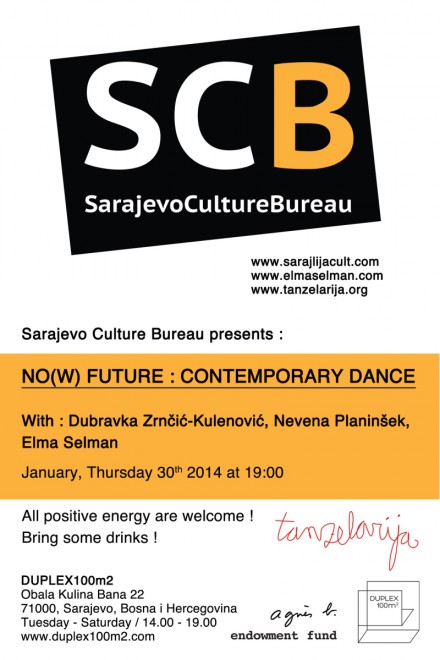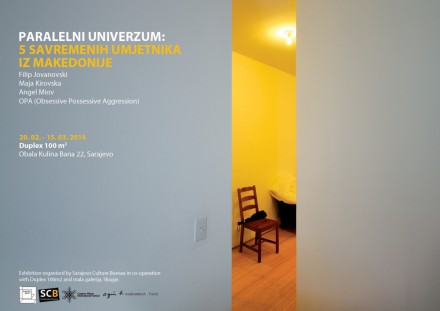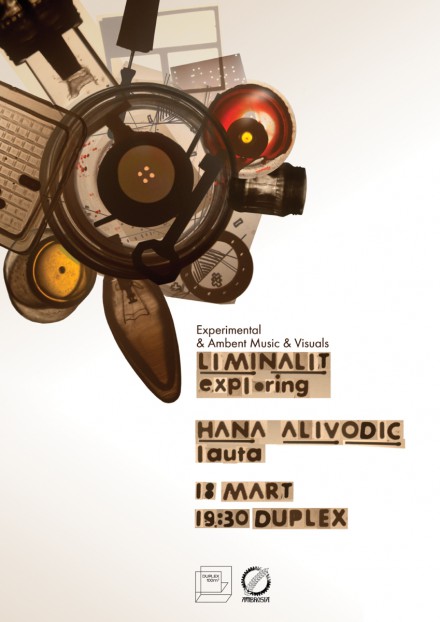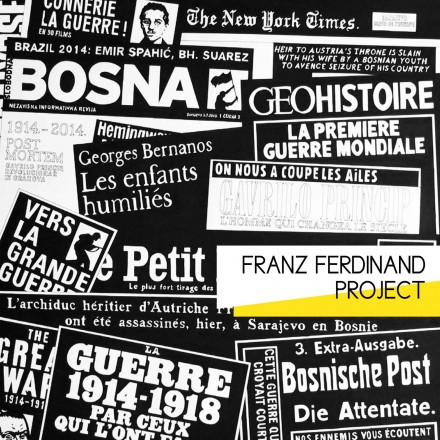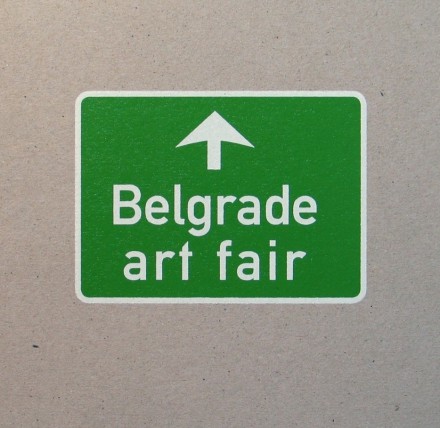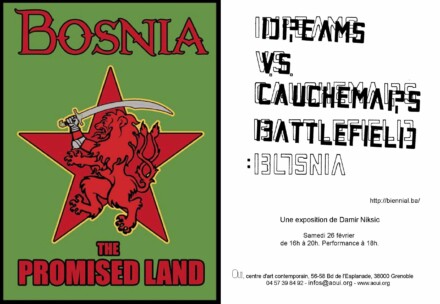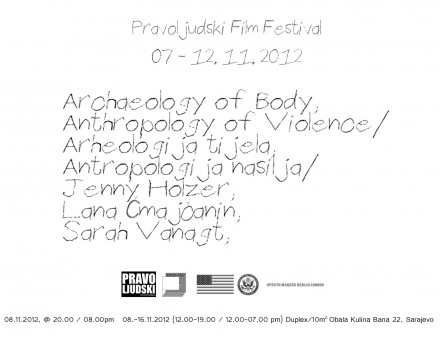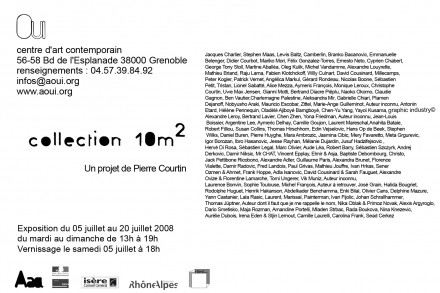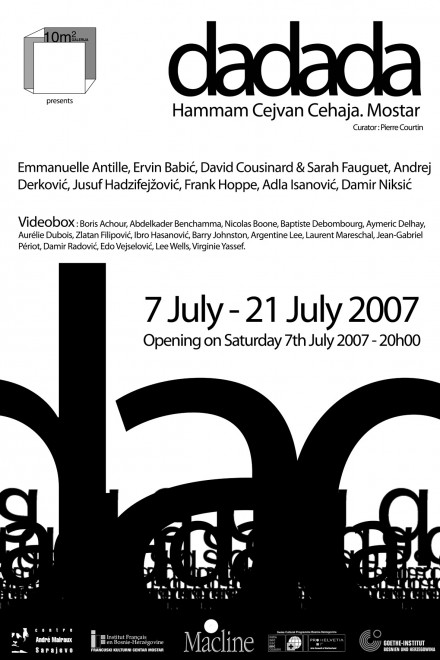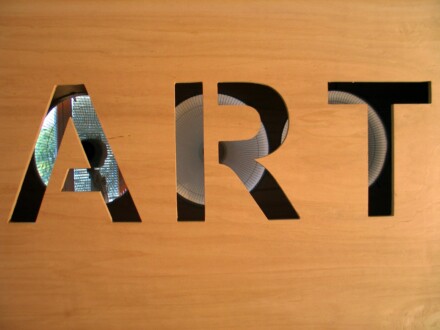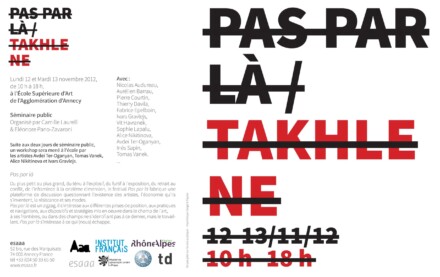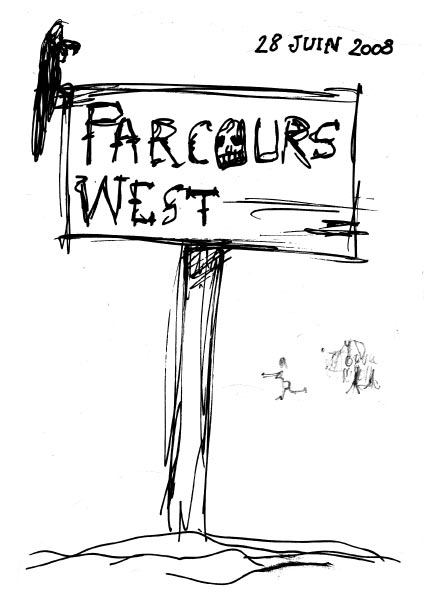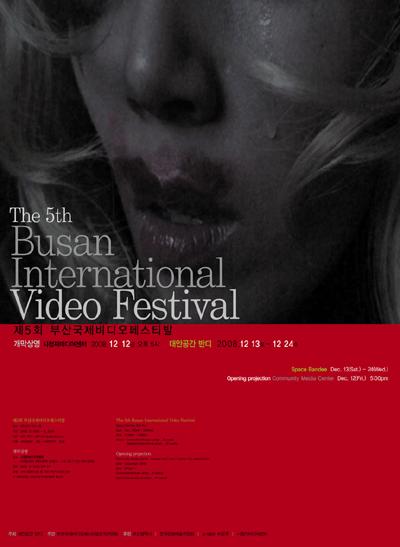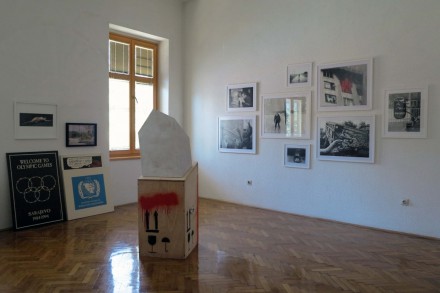Dante Buu 2013
«Mama I am OK in the Neon Green»
Dante Buu
Interview with Sarajevo Culture Bureau & Jon Blackwood
The pseudonymous artist Dante Buu opened his debut solo show, Mama I am OK in the Neon Green, at duplex on the 13th December. This week SCB was able to have a walk through of the show with him. Here is the transcript of our talk:
SCB: So, it is an unusual start for a new artist to have a solo show here in duplex. Tell us how the exhibition came about, and your main ideas in developing it.
DB: Well, the origin of the show is in a blog of images that I made a while ago, these postcards home that I manipulated in photoshop. They represent different phases of my life to date. Then, last year I met Šejla (Kamerić) and began to help her with the work on her new movie. She really encouraged me a lot, saying that I had talent and that i should try to exhibit some of my pieces. So I suppose that in that sense, it really was a lucky break.
The title piece for the exhibition is these twenty one postcards on the table- Mama I am OK. I suppoose these postcards reflect the difficulties of trying to share intimate feelings with your parents. I also wanted to explore the idea of how to achieve intimacy through open-ness, and honesty. These postcards are really clean and are just simple sentences, but they are important as much as for what is implied rather than what is said. The messages are mixed and share my feelings clearly.
SCB: What is the significance of neon green?
DB: Well, as I think the postcards show too, this is an exhibition about identities, how we choose identities in the present time and the consequences that choice has for us. Neon Green I suppose is a really artifical colour; it is a setting where the many falsehoods we tell about ourselves to others can be seen as most vivid. It’s a colour which reflects how we choose artifical things about our selvesa nd how we present ourselves to others. But this is not an innocent choice; the lies we tell about ourselves carry on impacting long after we have told them. In part, it is a call for self reflection, on these processes; where are we going with all this?
SCB: This is interesting though, as in this room we are surrounded by photographs that echo the worlds of fashion and film; staged photographs that are acutely artifical….
DB: Absolutely. these photographs are all about pretence and artifice. This photograph is from the series Weekend Lovers; it is a presentation of a perfected image of the heterosexual man. We live in a society where patriarchy and heterosexism are hegemonic. The image suggests a normal heterosexual couple, but of course the viewer knows that this is not true. It’s an image of a couple shown in the best possible light, but I am always interested in what is not shown, or hidden. It’s an image about lying, and I suppose I am suggesting how different things could be, if we channelled the force and energy we put into pretending, in other directions. It’s also a refelctive and sad image, of how people become trapped in the lies they tell and are unable to escape them; it’s a theme which bears a relationship to instagram culture, to social media narcissism. In the social media age we have all become trapped in our own artificiality.
SCB: Let’s go through and look at this Dark Room Installation next door. Can you explain the thinking behind it?
DB: Well, the overall look is taken from the darkrooms that you see in gay nightclubs. It’s a glass box with neon green lights, and the message is very direct. Dust- I suppose like experience from the past, falls on the lights and creates the medium on which my message is written. Again, the message “I fuck with foreign men because from where I come from no one is gay” links back to this idea of images and stereotypes. In the Balkans, the stereotype of gay men are camp and effeminate ones. However, if you are gay and not acting like that, it scrambles the codes. I suppose it touches on the idea, too, of gay men being objectified and marginalised; as being womens’ best friends; of having to try and conform to some kind of set behaviours determined by others. Few people in our time have a very healthy approach to life, with this obsession with labels and appearances. It’s a piece about visual saturation in our society, but there is nothing behind this visual facade.
SCB: In the front office you have shown a number of video and sound installation pieces…
DB: yes, there’s a ctually a sound piece in the coprridor which a lot of people miss..it is called In the Next Video I Will Sing for you. The sound comes from videos that past lovers have sent to me. It is a mixture of a Chopin Waltz, and a monologue. I suppose this kind of communication is the new love letter, an extension of contemporary artifice into intimately personal communication. This piec is about the promise of love that such messages convey, btu the brutal reality that thse expectations are never met. It’s about us, too, and how we change and adapt our identities so that others might love us. Image creation is as much pretence as it is working towards a final goal.
SCB: After such a high profile first appearance, what is next for you?
DB: Really, I am not sure, we will see. My background is in Gender Studies and Journalism, I am particualrly intertested in marginalised groups and how they are represented. i am also interested in developing my work on intimacy and honesty further. I grew up in Montenegro, in a small town near the borders with Serbia and Kosovo. It was tough growing up there, being a slightly different kid, but those hard early experience made me into the person i am today. I want to show that to people, and to continue living life as i want to. I hope I have found a way to develop, to intervene and make an impact, and this is just a start. I am not terribly interested in being seen as a “gay artist”; it is part of me and my identity, but only a part. I want to speak out honestly about other issues, too…
